세계의 33가지 만두
세계에서 가장 좋은 만두는 모든 대륙과 국가에서 찾을 수 있으며, 각 나라의 만두는 최고의 편안한 음식입니다. 세계를 여행하면서 한 번에 하나씩 만두를 찾아가며 최고의 만두를 찾고 그 나라의 음식 문화를 체험하는 것은 많은 음식 여행자의 꿈입니다. 네팔 모모부터 미국 사과 만두까지, 거의 모든 나라는 당신이 어머니 요리를 잊게 할 맛있는 반죽 음식을 가지고 있습니다.
어떤 나라에 있든 만두는 최고의 편안한 음식이며, 짭조름한 버전과 단맛 버전 모두에서 즐길 수 있습니다. 진정한 전통적인 만두 요리를 경험하려면 원하는 나라로 가서 먹기만 하면 됩니다. 서아프리카의 후후에서 유카탄의 기베, 말레이시아 만두에서 폴란드 피로지까지 다양합니다.
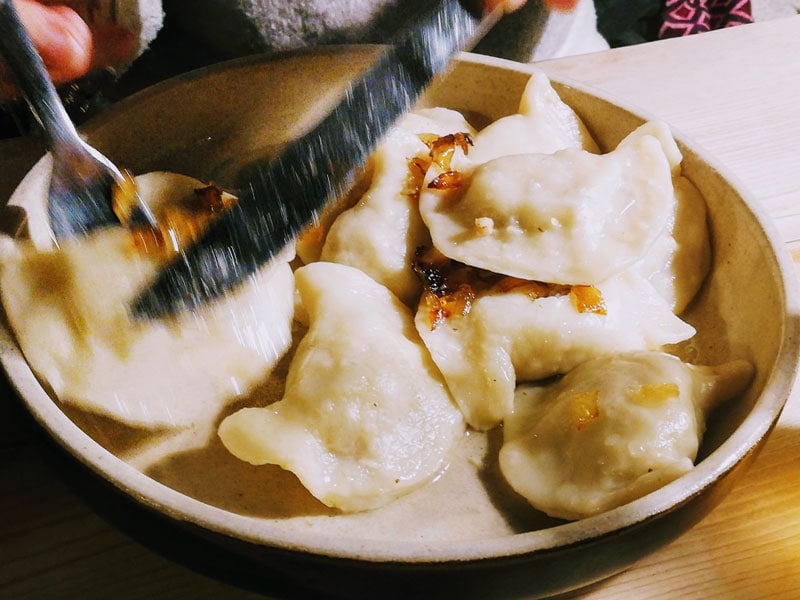
만두란 무엇인가 - 만두의 종류
위키백과에 따르면, 만두는 '각종 전분 원료로 만들어진生면단을 조각으로 떼어 그 안에 채소, 고기 또는 과일 등의 재료를 넣고 구운 것, 삶은 것, 찐 것 또는 튀긴 것으로, 이를 총칭하는 말'입니다. 만두는 육류, 생선, 치즈, 야채, 과일 또는 디저트로 채워질 수 있으며, 제작 방법도 굽기, 삶기, 튀기기, 끓이기 또는 찌기 등 다양합니다. 그리고 이는 많은 나라의 요리에서 찾아볼 수 있습니다.
저는 종종 샘오사, 코니시 파이, 엠파나다 및 니쉬와 같은 아이템들이 포함된 일반적인 만두 기사들을 보곤 합니다. 하지만 저는 조금 전통적인 편입니다. 저에게 있어 만두는 보통 채워진(또는 생면단 속 재료에 따라 채우지 않은) 생면단으로 삶거나 찐 후 때때로 튀긴 것입니다.
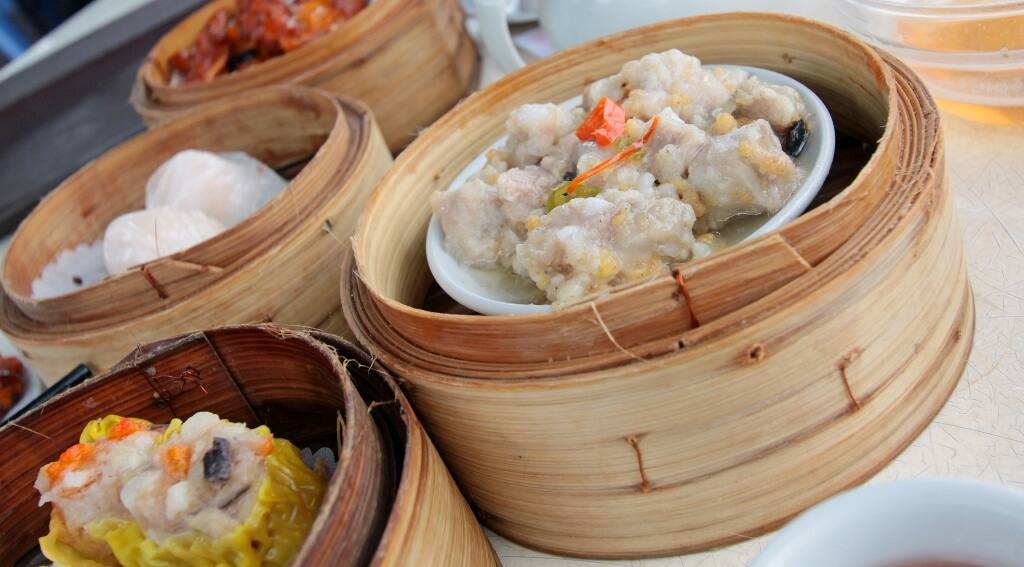
여행자가 쓴 세계 최고의 만두 가이드입니다. 그곳에 다녀서 다양한 종류의 만두를 먹어본 사람들로부터 내부자만의 만두 팁을 공유합니다.
세계의 33가지 천국 같은 만두
만티, 아르메니아
그 지역 외부에서는 거의 인정받지 못하는 가장 풍미 있는 만두 중 하나는 실크로드 국가들과 주로 연관된 작은 만두인 만티입니다. 우리는 여러 나라에서 이를 시도해 보았지만, 특히 서부 아르메니아(현재의 동부 터키)의 것을 선호하며 요즘 예레반의 모든 서부 아르메니아 레스토랑에서 찾을 수 있습니다.
만티는 양고기나 다른 고기로 채워져 닭 육수와 함께 제공되는 작은 배 모양의 만두입니다. 큰 술 한 방울의 마늘 요거트와 위에 살짝 뿌려진 섬산 또는 알레포 후추와 함께 제공될 수 있습니다. 일반적으로 큰 판에서 구워지고 집에서 열릴 모임을 위해 많은 곳에서 대량으로 구매할 수 있습니다.
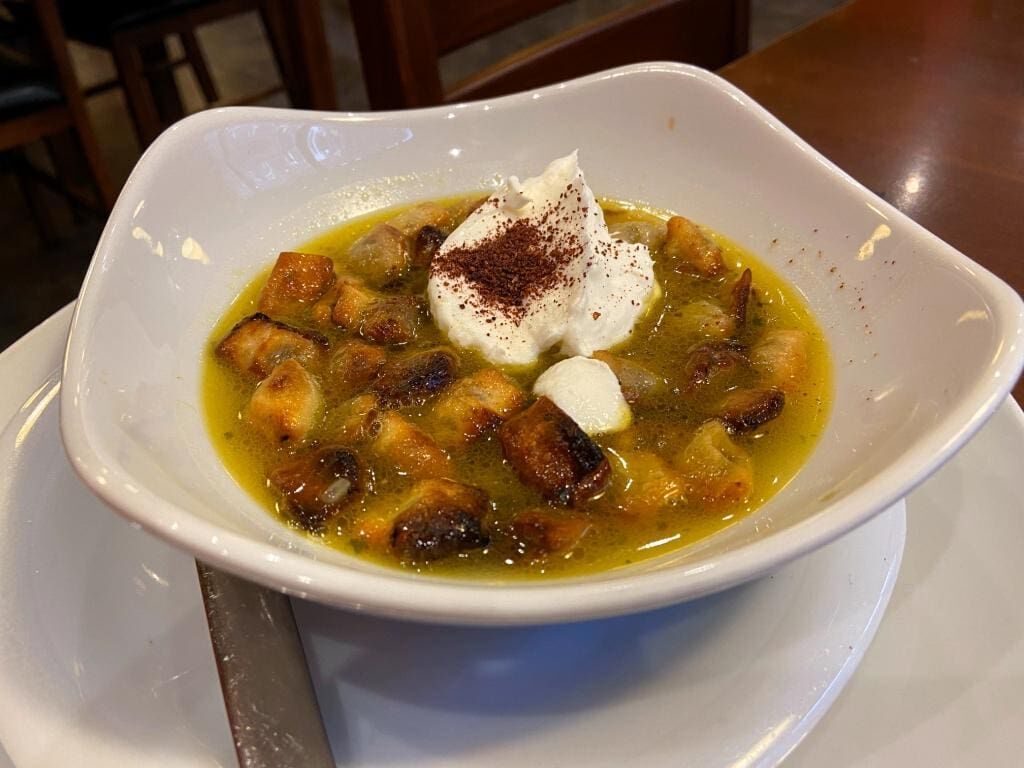
아르메니아에 있거나 캘리포니아의 로스앤젤레스 지역(또는 큰 아르메니아 이민자 사회가 있는 곳)이라면 만티를 찾기는 꽤 쉽습니다.
예레반에서 해야 할 최고의 활동 중 하나는 도심으로 가서 안테브라는 맛있는 레스토랑으로 가는 것입니다. 이곳은 서부 아르메니아 요리를 전문으로 하는 곳이며, 메뉴에 만티가 있습니다. 그리고 매우 저렴합니다. 약 2달러 정도에 이 맛있는 요리를 맛볼 수 있습니다. 아르메니아 음식은 보이는 것보다 훨씬 다양하며, 아르메니아에 있거나 근처 나라에 있을 때는 메뉴에 있는 만티를 꼭 시도해 보세요. Absolute Armenia의 메간과 아람 드림
파니푸리, 인도
그들은 맛있는 간식으로, 세계에서 가장 인기 있는 거리 음식 중 하나이며, 너무 인기가 많아 인도의 여러 지역이 이를 자신들의 것으로 주장하고 있습니다. 뭄바이(봄베이)에서는 팬이 푼리라고 불리며, 양파, 콩, 감초 향신료로 만든 감자 혼합물과 타마린드 초장, 그리고 향신료가 가미된 물로 채워진 공허한 튀긴 밀가루 공입니다. 팬이 푼리는 기관이라고 할 수 있으며, 뭄바이 전역의 많은 모퉁이에서 찾아볼 수 있는 보편적인 거리 음식입니다.
하지만 팬이 푸리는 뭄바이에서만 발견되지 않습니다. 델리에서도 골가프라는 이름으로 사랑받는 거리 음식이며, 다른 많은 장소에서도 찾을 수 있습니다. 하리야나 주에서는 파니 파타시라고 하고, 비하르에서는 푸차카라고 부르며, 오디샤에서는 구프슈프이라고 합니다.

가격과 외관상 겉보기에 겸손해 보일지라도, 파니 푸리는 거리 음식의 왕으로 여겨지며 그에 걸맞는 역사를 가지고 있습니다. 파니 푸리의 기원에 대한 명확한 증거는 없지만, 전설에 따르면 이는 인도 서사시 마하바라타에서 다섯 판다브 형제의 아내인 드라우파디가 만들었다고 합니다. 전설에 따르면 드라우파디는 세 명의 판다브 형제의 어머니인 쿤티가 내건 도전에 응답하여 이 요리를 발명했으며, 쿤티는 이를 맛보고 너무 감동받아 이 요리에 불멸을 축복했다고 합니다.
이것이 진실인지 아닌지는 아무도 모릅니다만, 한 가지 분명한 것은 파니 푸리가 불멸을 얻었다는 것입니다. 입안에서 녹아내리는 이 간식을 한번 맛보면 평생 잊지 못할 것입니다. 상을 수상한 여행 사이트 Breathedreamgo.com의 마릴렌에서 보내드립니다.
푸푸, 서아프리카
푸푸는 보통 카사바와 고구마로 만들어지며, 때때로 코코야姆, 바나나 또는 옥수수 가루와 함께 조합됩니다. 가나에서는 푸푸가 주로 삶은 카사바와 익지 않은 바나나를 으깬 것으로 만들어지며, 코코야姆으로도 만들 수 있습니다. 푸푸는 또한 세몰리나, 쌀, 심지어 인스턴트 감자 가루로도 만들 수 있습니다.
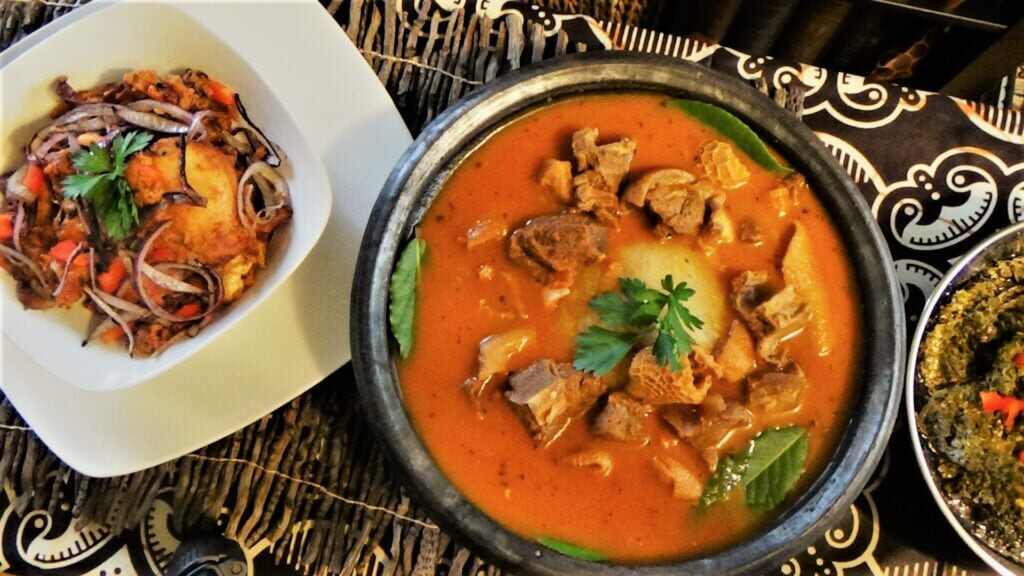
서부 및 중앙 아프리카에서는 더 일반적인 방법으로 푸푸 덩어리를 한쪽에 놓고 그 옆에 스프(ọbẹ)를 제공합니다. 손을 씻은 후, 식사는 푸푸에서 작은 덩어리를 집어서 엄지손가락으로 움푹 들어간 부분을 만들어 넣고 그 안에 스프를 담아 먹습니다. 나이지리아와 가나에서는 이 덩어리를 종종 씹지 않고 그냥 삼킵니다 - 사실, 푸푸를 씹는 것은 실수로 여겨집니다.
우갈리, 동아프리카
우가리라는 요리를 들어본 적이 있을 것입니다. 이것은 매우 전통적인 동아프리카 음식입니다. 서아프리카의 후후와 비슷하지만 옥수수로 만들어져서 폴렌타와도 비슷합니다. 우가리는 큰 덩어리 모양으로, 이를 떼어내어 스튜를 찍어 먹거나 그 중심에 두고 주변에 스튜를 얹어 먹습니다.
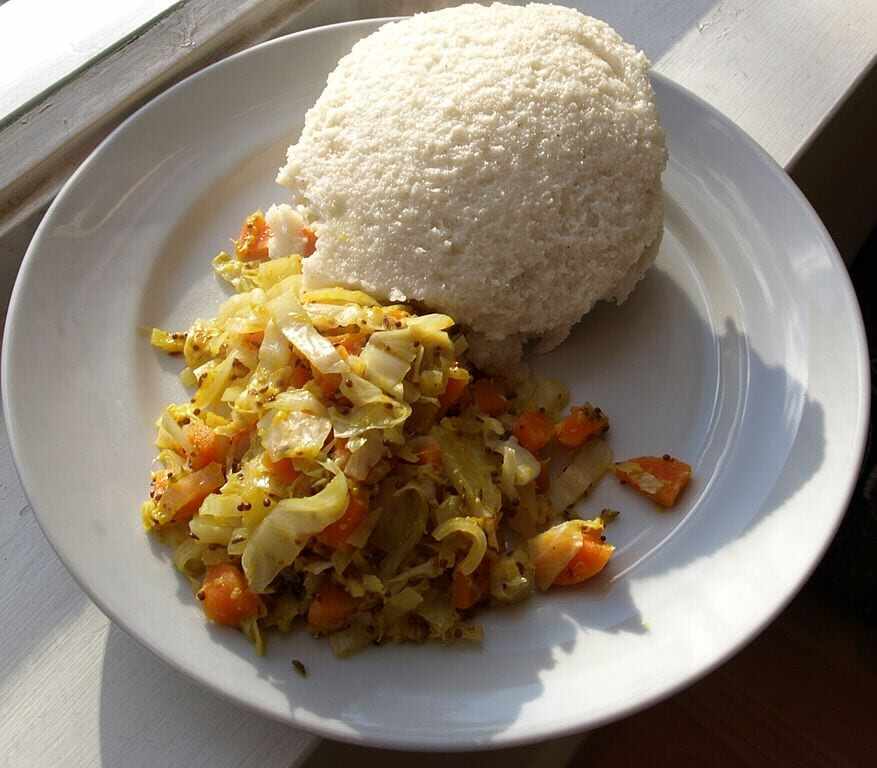
바르니키, 우크라이나
우크라이나에서 다른 어떤 요리보다도 현지인들에게 사랑받고 있으며, 이 나라를 방문하는 사람들에게 추천되는 요리가 바로 바르니키 .
바르니키라는 단어는 '삶다'는 우크라이나 동사에서 유래했으며, 문자적으로 삶은 음식을 의미합니다. 이 나라는 오스만 제국으로부터 원래 레시피를 계승했는데, 거기서 이 요리는 두쉬 바르
작은 반죽 조각들을 달콤하거나 짭조름한 필링으로 감싸 만듭니다. 우크라이나 사람들은 바르니키를 딸기, 사과, 배와 함께 또는 감자와 볶은 양파, 고기, 김치, 저지방 치즈, 버섯과 함께 먹습니다.
최고의 필링 재료는 however 체리입니다. 우크라이나의 수도인 키예프를 방문하여 이러한 신맛이 나는 베리로 만든 계절별 변형을 시도하기에 가장 좋은 시기는 여름입니다.
필링은 달라질 수 있지만, 바렌니키를 제공할 때 항상 변하지 않는 것이 하나 있습니다. 우크라이나의 대부분의 다른 요리와 마찬가지로, 이 요리는 차가운 사워크림과 함께 먹어야 합니다.
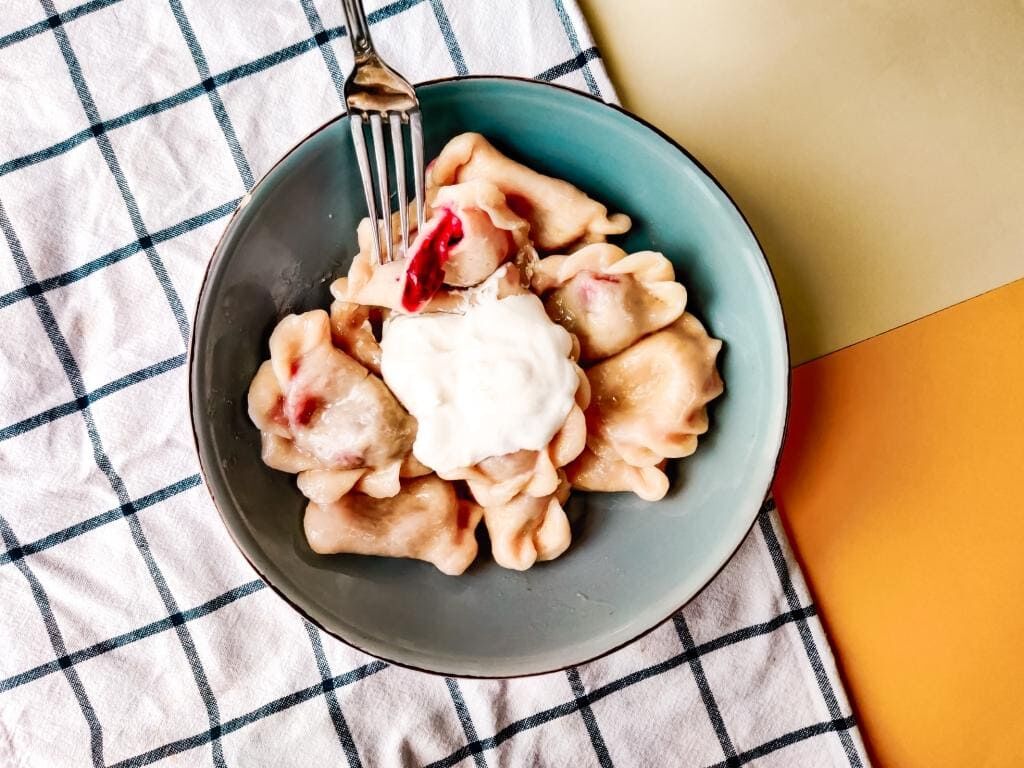
바렌니키는 많은 지역 전통의 중요한 부분이며, 1월 6일 크리스마스 전날이 가장 인기 있는 날 중 하나입니다. 옛날에는 마을의 여자들이 결혼한 여자의 집에 모여서 여성들이 축제 저녁 식사를 준비했습니다. 주인은 종종 일부 만두에 후추 한 꼬집을 추가하고 이를 독신 여성들에게 제공했습니다. 후추가 들어간 바렌니키를 받은 여성들은 그 해에 결혼하게 될 운명이었습니다. Inessa와 Natalie의 Through a Travel Lens에서.
크렙플라흐, 동유럽
크렙라치는 라비올리와 비슷한 음식으로, 잘게 썬 고기나 치즈로 채워져 소금과 후추로 양념된 반죽으로 만들어집니다. 이들은 삼각형으로 접힌 후 수프에 넣어 조리되며, 튀길 수도 있습니다. 크렙라치는 특히 퓨림이나 호샤나 라바와 같은 명절 때 인기가 많습니다.
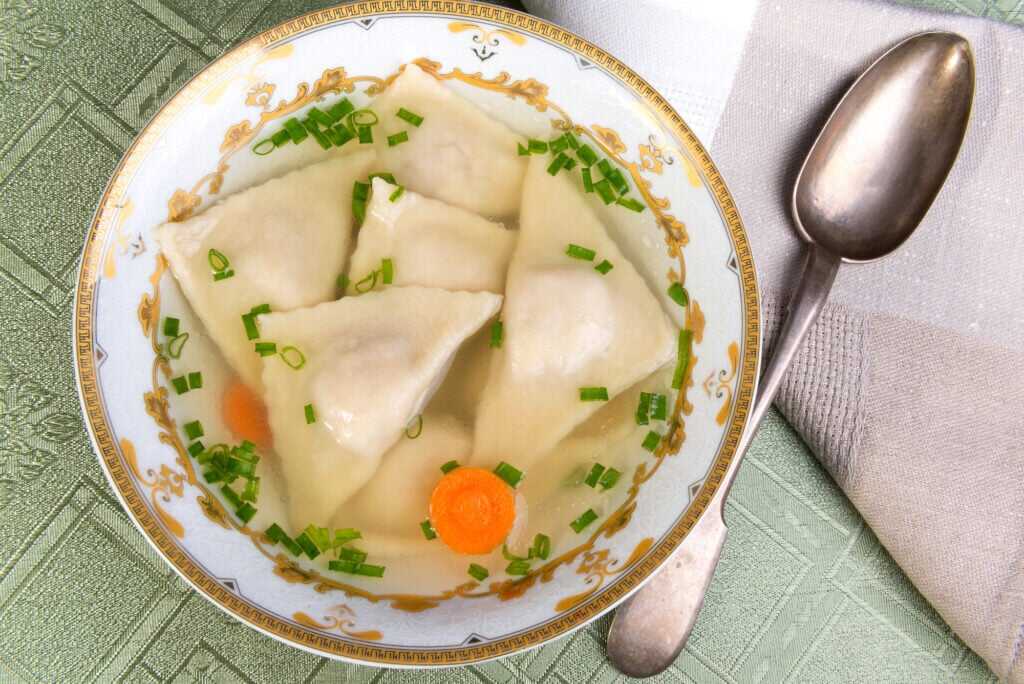
브린드조베 피로히, 슬로바키아
시도해 볼 만한 최고의 슬로바키아 음식 중 하나는 브린드조베 피로히입니다. 이는 슬로바키아에서 가장 인기 있는 재료인 염소 치즈로 채워진 맛있는 감자 곰탕입니다. 이 부드럽고 고소한 치즈는 슬로바키아 요리에서 가장 인기 있는 유제품으로, 국경 요리인 브린드조베 할루슈키에도 사용됩니다. 아마도 짐작할 수 있듯이, '브린드조베'라는 단어는 염소 치즈를 의미합니다.

이 인기 있는 만두는 쌀이나 밀가루 대신 감자로 만들어지는데, 이는 동유럽에서 흔한 방식입니다. 브린드조베 피로히는 일반적으로 여섯 개씩 제공됩니다. 이들은 주요 식사 전에 먹는 입맛 돋우기 요리지만, 충분히 든든해서 메인 요리로도 즐길 수 있습니다. (슬로바키아 사람들을 제외하고는) 비판받지 않을 겁니다: 이들은 매우 맛있고 칼로리가 높습니다.
브린드조베 피로히는 염소 치즈로 채워져 있으며, 사워크림, 바삭한 베이컨 조각, 그리고 슬로바키아의 하루 녹색 영양소를 위해 파프리카가 뿌려져 있습니다. 이 맛있는 감자 만두는 건강식은 아니지만, 브라티스라바나 나라 전역에서 시도해볼 만한 훌륭한 요리입니다. Rose of WheregoesRose로부터
샤오롱바오, 타이완
샤오롱바오는 장쑤 성에서 기원한 중국 종류의 만두입니다; 그러나 그들은 대만과 함께 중국 전역에서 찾을 수 있습니다. 타이페이로의 여행 중 우리는 맛있는 샤오롱바오를 파는 놀라운 작은 가게를 발견했습니다. 샤오롱바오는 '작은 바구니 찐빵'으로 번역됩니다. 매우 얇은生面皮로 만들어지고 전통적으로 돼지고기와 고기 주스로 채워집니다. 요즘에는 닭고기, 새우 또는 야채가 든 샤오롱바오도 있습니다.
타이베이 시내 중심부에서 꽤 멀리 떨어진 지역의 무명 골목에 있는 작은 임시 매장이었지만, 실제로 그 지역에서는 꽤 유명했습니다. 매일 아침 많은 사람들이 타이베이에서 판매되는 가장 맛있는 만두의 작은 바구니를 사기 위해 줄을 서곤했습니다. 그리고 아마도 세계에서요. 우리는 거기에 네 번 연속으로 아침 식사를 했고 두 개의 작은 테이블 중 하나에 앉아 샤오롱바오를 먹으며 줄이 점점 길어지는 것을 지켜봤습니다.
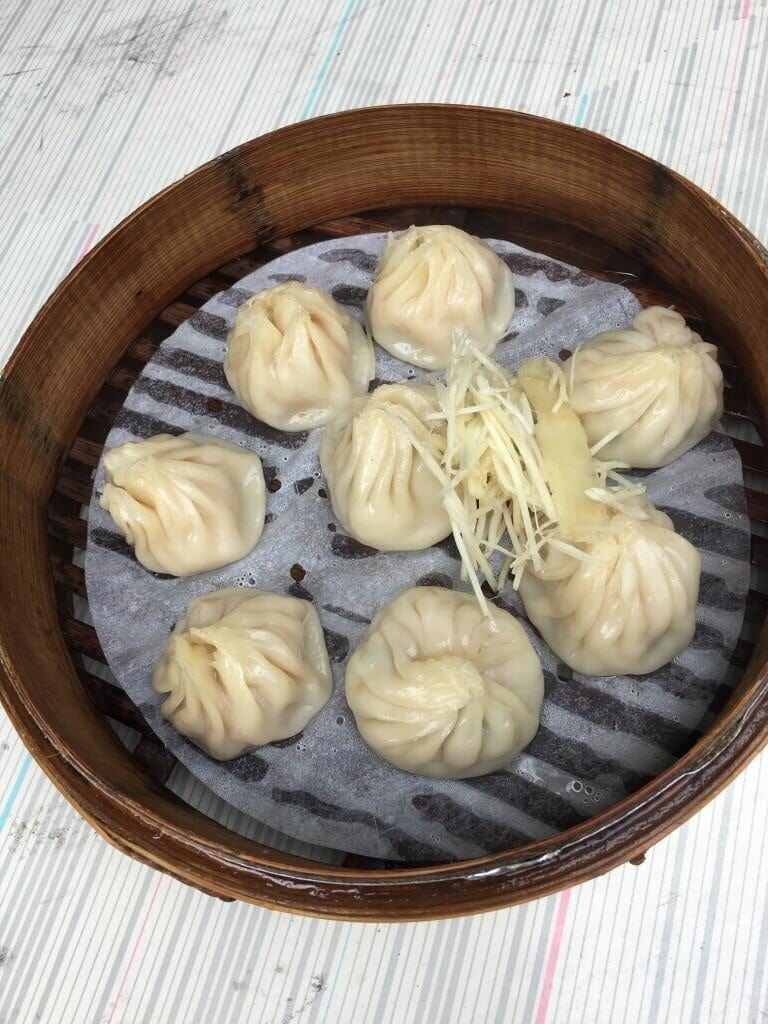
8개의 만두가 든 바구니는 단지 50NT (약 1.70달러)로, 이렇게 훌륭한 만두를 이런 가격에 살 수 있다는 것은 정말 싸다. Lotte from Phenomenal Travel Blog
힌칼리, 조지아
힌칼리는 일명 '스프 만두'라고 불리며 조지아 요리의 주요 음식 중 하나이자 이 나라에서 가장 사랑받는 요리 중 하나이다. 조지아 티빌리스에서 할 수 있는 최고의 활동 중 하나는 음식을 즐기며, 힌칼리는 그 중 하나의 즐거움이다.
힌칼리가 처음 등장한 정확한 장소나 시기는 알려져 있지 않지만, 몇몇 사람들은 이 만두가 카우카스 지역의 몽골 영향으로 거슬러 올라간다고 말한다. 따라서 힌칼리는 중국 샤오롱바오의 사촌뻘에 해당할 것이다.
간단하면서도 만족스럽고, 보통 손바닥 크기인 힌칼리는 전통적으로 산악 지대 요리로 마을에서 준비되어 먹었다. '산악 힌칼리'는 가장 기본적인 버전으로 소고기 다진 고기로 만들어지며, 더 맛있는 힌칼리 칼라쿠리 또는 '도시 힌칼리'는 티빌리스와 쿠타이시의 레스토랑에서 쉽게 찾아볼 수 있다.
이 변종은 돼지고기와 소고기를 혼합하여 향신료와 신선한 허브를 건강하게 더한 것입니다. 채식주의자 버전도 매우 인기가 많습니다 - 버섯, 감자로 채워진 힌칼리나 혹은 제 개인적인 최애인 나두기(부드럽고 크림 같은 리코타 치즈)로 채워진 것을 맛볼 수 있습니다.
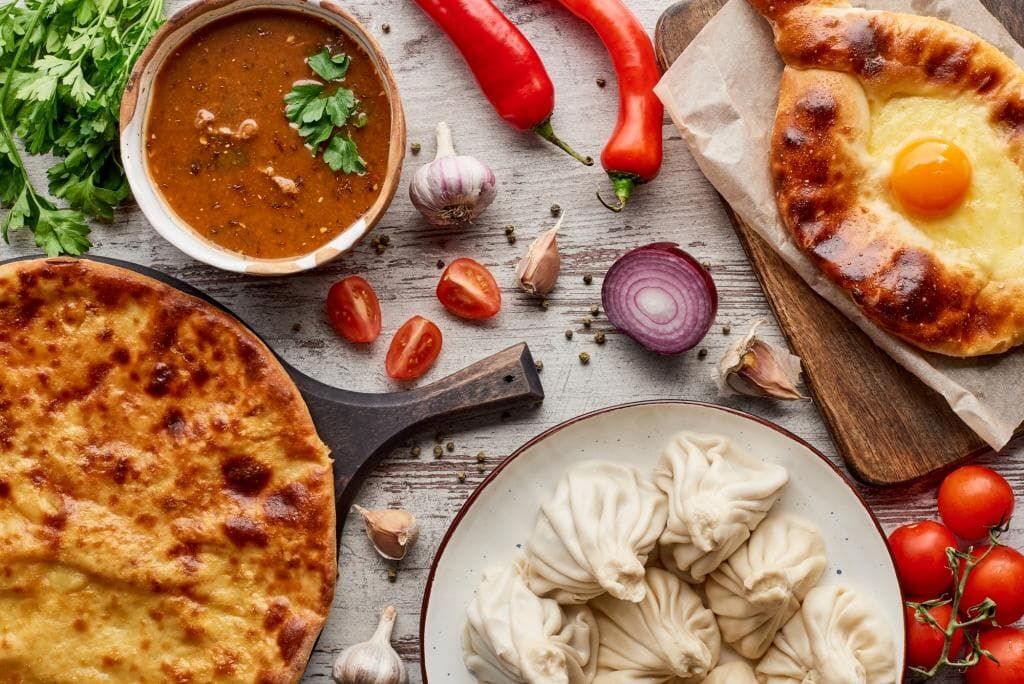
힌칼리의 핵심은 이 지방 만두에 특유의 모양을 부여하는 간단한生면피입니다. 상단에 접어 봉합하여 노브 형태를 만들면, 만두는 삶아져서 그릇에 제공됩니다. 생면은 고기 육즙을 내부에 가둘 수 있어, 작은 입으로 물어뜯고 국물을 빨아들인 후 나머지를 먹어야 합니다.
이러한 이유로, 힌칼리는 항상 손으로 먹거나 포크 끝을 생면 '손잡이'에 살짝 눌러서 반대쪽으로 입에 가져갑니다.
생면 노브를 접시에 남기는 것이 예의 바른 행동으로 여겨지지만, 전체를 다 먹는다면 누구도 당신을 비판하지 않을 것입니다. 에밀리, Wander-Lush 작성
이탈리아 남티롤의 칸네델리
이탈리아 북부의 가장 북쪽에 위치한 동 알프스 산맥의 남티롤 지방은 독특한 요리를 가지고 있다. 북쪽의 게르만계 이웃들로부터 유래된 요리는 풍성한 알프스 음식이다. 그 중 하나는 세계에서 가장 독특한 수프 가루 떡이다 — 카네델리 (독일어로는 knödel) — 빵 가루 떡으로 든든하고 맛있다.
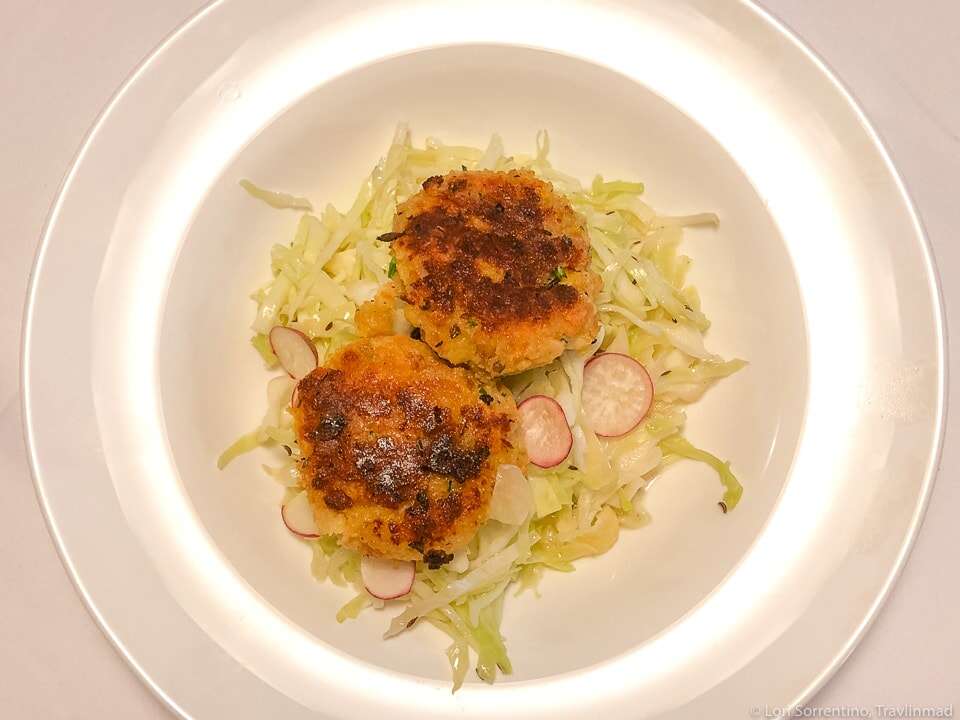
카네델리는 13세기경부터 먹여져 왔으며, 당시에는 가난한 사람들의 음식으로 여겨졌다. 처음에는 단순히 식은 빵을 불린 후, 주변에 있는 재료를 추가하여 빵 공으로 만들어 끓인 것이었다.
오늘날 카네델리(Canederli)는 여전히 식은 빵과 약간의 밀가루로 만들어지지만, 우유로 부드럽게 하고 계란으로 묶습니다. 인기 있는 추가 재료로는 시금치, 리코타 치즈, 스펙, 팬체타 등이 있습니다. 삶은 후 가볍게 튀기거나 그대로 먹으며, 버터를 뿌려서 또는 수프와 국물과 함께, 또는 고기와 함께 제공됩니다. 종종 이들은 복숭아와 같은 과일로 채워져 디저트로 먹기도 합니다. 전통 레시피는 항상 지역에서 구할 수 있는 재료에 기반하며, 가족마다 레시피가 다릅니다.
하이커들이 가장 좋아하는 음식 중 하나인 카네델리는 웅장한 돌로미티 산맥이나 오스트리아 국경 근처의 작은 계곡인 안톨츠탈(Antholzertal)을 지나는 작은 여관과 산장에서 항상 제공됩니다. 겨울 스포츠와 스키 애호가들은 거의 항상 저녁 식사 때 이 떡볶이를 포함합니다. 카네델리는 우리에게 남티롤 저녁 식사의 따뜻한 하이라이트였으며, 현지 맥주와 완벽하게 어울렸습니다. 로리(Lori)의 행복한 섭취 - Travlinmad
쿠라르지오네스, 사르디니아
쿠라르지오네스는 사르디니아에서 가장 유명한 요리 중 하나입니다. 이 간식 파스타는 재가공된 세몰리나 또는 디우럼 밀가루, 물, 그리고 소금 한 꼬집으로 만든 간단한生면으로 만들어지며, 반면에 채소는 삶은 감자, 페코리노 치즈, 신선한 민트 및 마늘의 약간의 힌트로 준비됩니다.
쿠라르지오네스를 다른 덩어리들로부터 구분짓는 것은 그들의 모양 - 그들은 당신에게 밀 이삭을 상기시킵니다. 쿠라르지오네스의 올바른 모양과 크기를 얻는 것은 숙련된 요리사들만이 수행할 수 있는 예술이며, 이를 올바르게 하기 위해서는 수년간의 연습이 필요합니다.
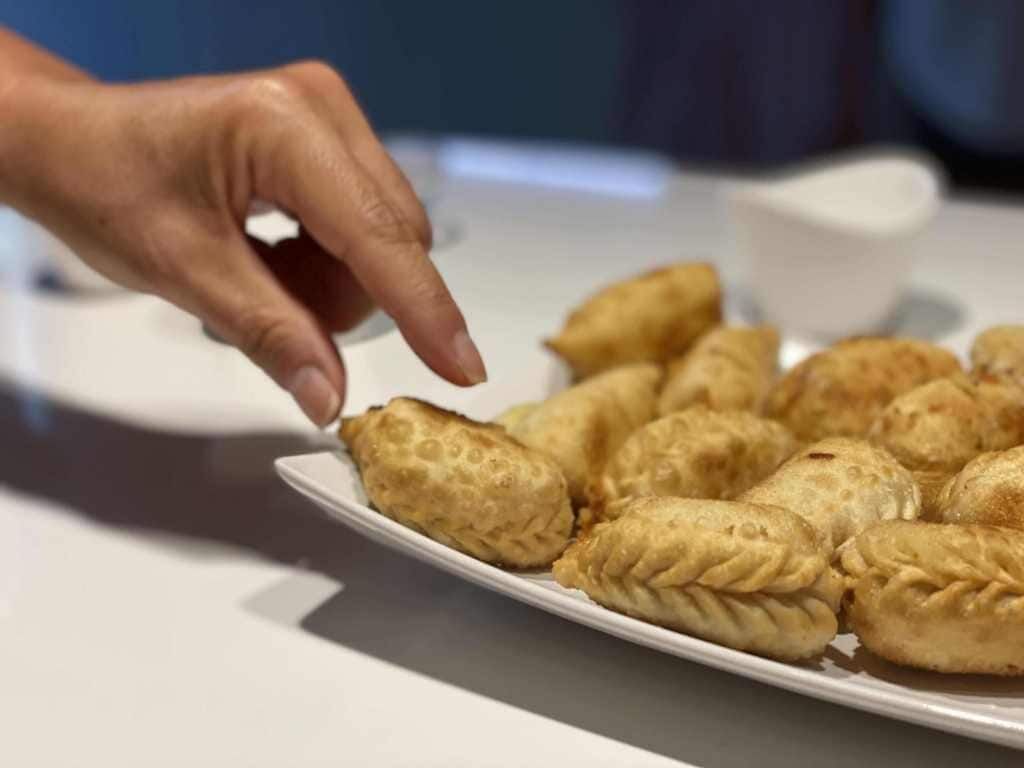
이 요리는 오글리아스트라 지역에서 발명되었습니다. 여기서 각 마을 - 사실상 각 가정 -은 자신만의 레시피를 가지고 있습니다. 그것들은 모두 맛있습니다. 현지인들은 종종 최고의 쿠라르지오네스에 대해 논쟁하는데, 어떤 사람들은 아르자나의 것이 가장 맛있다고 말하고, 다른 사람들은 '카스 에 피타'(소금물에 보관된 신선한 페코리노 치즈로 그리스의 피타 치즈와 자주 연관됨)를 사용하는 스에이의 것이 최고라고 주장합니다.
쿠라르지오네는 단순히 페코리노 치즈를 뿌려 삶아 먹을 수 있으며(기름이나 버터는 추가하지 마세요!); 평범한 토마토 소스와 풍부한 페코리노로도 먹을 수 있고, 심지어 기막힌 애피타이저로 튀겨서 먹을 수도 있습니다. Strictly Sardinia의 클라우디아 타바니가 제출함
칸롬 지브, 태국
이 찐만두는 태국 전역의 거리 음식에서 필수품입니다. 방콕 거리 음식의 무궁무진한 미로에서 자주 발견되며, 태국 거의 모든 골목마다 있는 7-11 편의점에서도 간식으로 일반적으로 판매됩니다. 7-11에서는 바오번(Sala Pao)과 함께 증기솥에 담겨 판매되며, 이는 칸롬 지브가 원래 중국 요리의 딤섬 중 시우마이 만두에서 영감을 받았기 때문에 중국으로부터 명확한 영향을 받은 것을 알 수 있습니다.
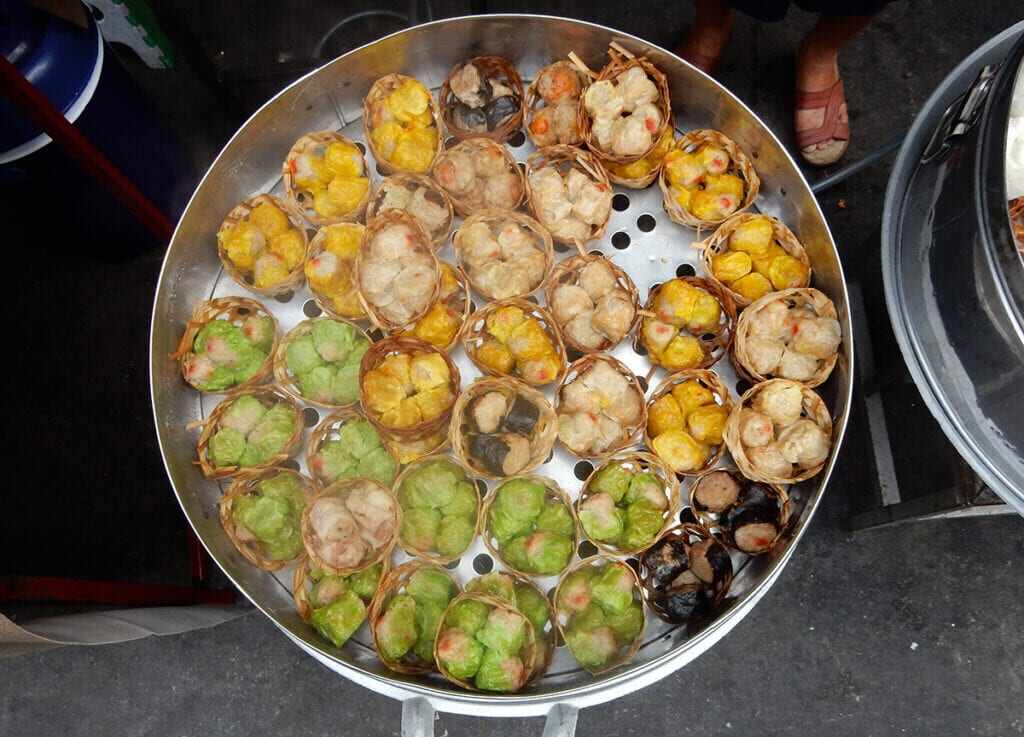
전통적으로 거리 음식으로, 도로변에서 끓는 물 위에 놓인 찜기에서 either 돼지 고기나 새우를 소로 한 만두가 찐 후 완전히 익도록 조리됩니다.
그들은 Nam Jim Khanom Jeeb라고 불리는 간장 식초와 함께 제공되며, 선택 사항이지만 매우 추천하는 구운 마늘 가루가 플라스틱 봉투에 담겨 날카로운 나무 꼬치로 골라 먹을 수 있도록 추가됩니다. 물론 일부는 다른 것보다 더 좋습니다. 예를 들어 7-11의 것은 제가 식감을 더 좋게 하기 위해 식초를 많이 부어 먹곤 했습니다. 그러나 실롬에서는 실롬 로드에 위치한 놀라운 길거리 음식 장수가 Khanom Jeeb를 아침 시간부터 다양한 만두 피와 필링, 풍미로 한 단계 더 발전시킨 것을 맛볼 수 있습니다. Allan Wilson from Live Less Ordinary
애플 덤플링, 미국
미국식 만두에 대해 이야기해봅시다. 편안함을 주는 음식 말이죠. 영혼을 따뜻하게 하는 음식. 제가 가장 좋아하는 만두는 세계를 여행하면서 먹은 것이 아니라, 어린 시절 집에서 먹던 것입니다.
사과 수확철은 저에게 해마다 가장 기다려지는 계절입니다. 미국 남부에서 자라면서 제 아버지는 여러 종류의 사과들을 모으기 위해 남쪽 주들을 다니곤 하셨습니다. 초록색과 빨간색, 단맛과 신맛이 나는 사과들 말이죠. 그분의 사과로 만든 요리들은 우리 동네에서 유명했습니다: 사과 버터, 사과 잼, 파이, 과자, 구운 사과와 튀긴 사과, 심지어 사과 아이스크림까지요. 하지만 제가 가장 좋아했던 것은 사과 만두였습니다.
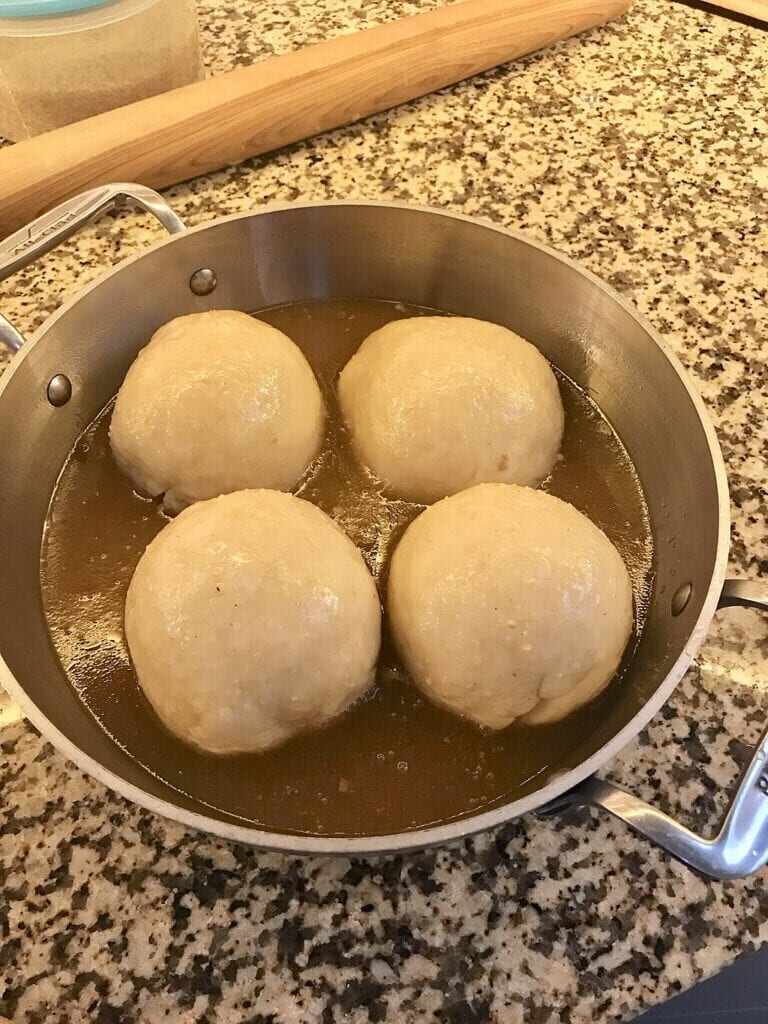
저는 아직도 그 따뜻하고 풍성하며 계피 향 가득한 사과 만두를 꿈꿉니다. 그리고 이생동안 계속 그렇게 할 겁니다. 저는 완벽한 사과 만두를 찾기 위해 많은 시간을 보냈지만, 안타깝게도 성공하지 못했습니다. 만약 그것을 발견한다면 꼭 알려주세요.
아버지는 레시피 없이도 재료들을 모아서 만두를 만들곤 하셨습니다. 우리는 그것을 바라보며 불안감을 느끼기도 했지만 입가에는 침이 고여 있었습니다. 아버지는 늘 이렇게 말씀하셨죠. '그 과정을 서두르면 안 돼.'
최종 상품은 두꺼운 실크 같은 반죽으로 감싸고 풍부한 계피 시럽으로 뿌려진 부드러운 베이크드 사과입니다.
유바 교자, 일본
유바, 즉 '두부 가죽'은 일본 교토에서 진정한 지역 특산물입니다. 사실, 두부도 교토의 특산물이며, 유바는 두부를 만들기 위해 끓이는 대두 우유 표면에 형성된 막입니다. 이 막을 버리지 않고 일본인들은 이를 요리하는 창의적이고 기발한 방법을 개발했습니다. 심지어 교토에는 두부와 유바 요리를 전문으로 하는 식당들도 있습니다.
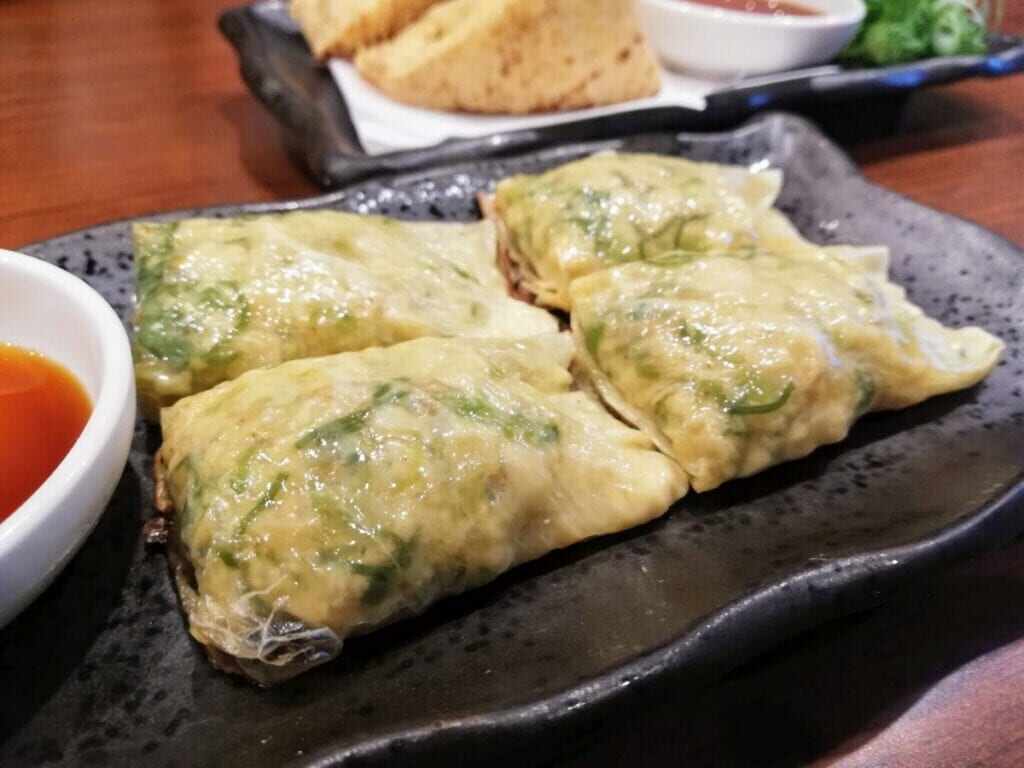
교자의 밀가루 피대를 유바로 대체하여 사용하는 것이 그 중 하나입니다. 이러한 독특한 교자를 맛볼 수 있는 좋은 곳은 교토 중심부에 위치한 작은 다이닝 바인 교자 차오차오입니다. 유바 피에는 동결 건조된 두부가 채워져 있어 두부의 더블 충격을 느낄 수 있습니다!
기술적으로 유바는 응고제를 사용하지 않고 만들어지기 때문에 두부의 한 종류로 간주되지 않지만, 비슷한 맛을 가지고 있으며 당연히 같은 기본 재료인 대두에서 만들어집니다.
어쨌든, 이 만두들은 완전히 식물성 원료로 만들어졌으므로 교토에서 베지테리안 음식을 먹기에 Gyoza ChaoChao는 훌륭한 선택입니다. 여기에 있을 때 그들의 다른 종류의 교자도 시도해 보세요. 사과 파이 필링으로 만든 달콤한 것도 있습니다! The Nomadic Vegan의 윈디 웨르네스가 기여했습니다.
쿠베, 이스라엘
쿠베는 최근 몇 년 동안 이스라엘 내외에서 인기가 증가하고 있는 전통적인 이스라엘 요리입니다. 쿠베 또는 기베라는 이름으로 1950년대 이라크와 시리아에서 온 유대인들과 함께 이스라엘에 도입되었습니다. 과거에는 소수 문화의 요리였지만 이제 이스라엘에서 가장 좋은 위안 음식 중 하나가 되었습니다.
쿠베는 세몰리나生면으로 만든 공 모양의 만두로, 소고기, 양파 및 향신료로 채워져 있습니다. 이 공들은 다양한 종류의 육수에서 조리되며, 이것이 요리의 이름을 결정합니다. 쿠베 세렉은 비트 국물에, 쿠베 바미아는 오크라가 들어간 토마토 육수에, 쿠베 디라앗은 버터넛 스쿼시 덩어리가 들어간 노란색 육수에서 만들어집니다. 마지막 것이 제最爱입니다. 다른 버전의 쿠베도 있는데, 이 경우 세몰리나와 불가르를 사용한 반죽을 심하게 튀깁니다. 저희 집에서는 중요한 명절과 축제 때만 만들어요.
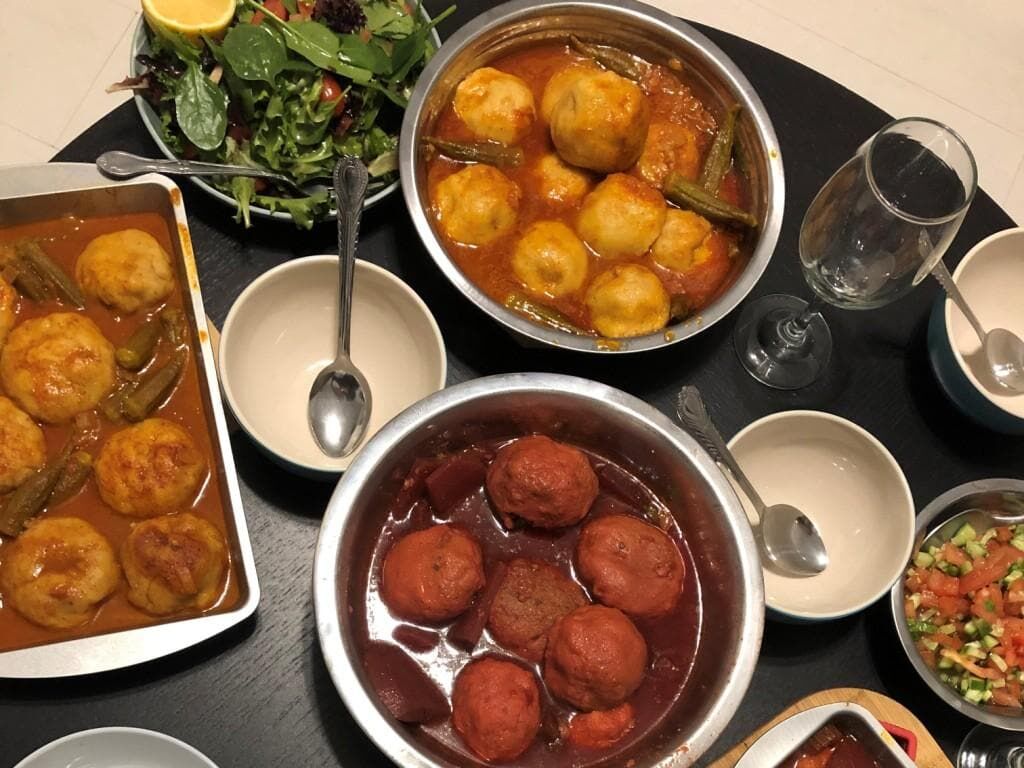
이스라엘에서 비건주의가 증가함에 따라 비건 쿠베를 찾는 것은 흔한 일이 되었습니다. 이 경우 소고기는 보통 버섯이나 고기 대체품으로 교체됩니다. 더 많은 비건 관련 아이디어를 원하신다면, 텔 아비브의 비건 레스토랑 포스트를 확인해보세요.
쿠베를 만드는 것은 노동 집약적이며 쉬운 작업이 아니다.生지르 시간이 필요하고, 공 모양을 만들고, 채우고, 닫는 특별한 기술이 필요하다. 이 기술은 과거에는 세대에서 세대로 전해졌지만, 요즘에는 쿠베 만들기 워크숍에서 이 맛있는 음식을 만드는 방법을 배울 수도 있다. 좋은 쿠베를 만드는 사람은 숙련된 요리사로 여겨진다.
내 여행 중에 나는 뉴욕시의 이스라엘 레스토랑과 멕시코에서 쿠베를 발견했지만, 가장 좋은 쿠베는 항상 집에서 먹는 것이다. The Top Ten Traveler의 모세가 작성했다.
피에로기, 폴란드
한때 농민 음식으로 여겨졌던 피에로기는 이제 폴란드의 국가 요리라고 할 수 있다. 이 맛있는 송편은 현지 요리의 필수품으로, 폴란드의 어느 마을, 도시 또는 도시의 모든 폴란드 레스토랑에서 쉽게 찾을 수 있다.
놀랍게도, 피로지의 기원에 대해서는 의견이 분분하다. 어떤 전설들은 피로지가 중국에서 왔다고 말하고, 다른 이들은 우크라이나에서 가져왔으며, 또 다른 이들은 중부 및 동유럽에서 수세기 동안 먹여져 왔다고 주장한다.
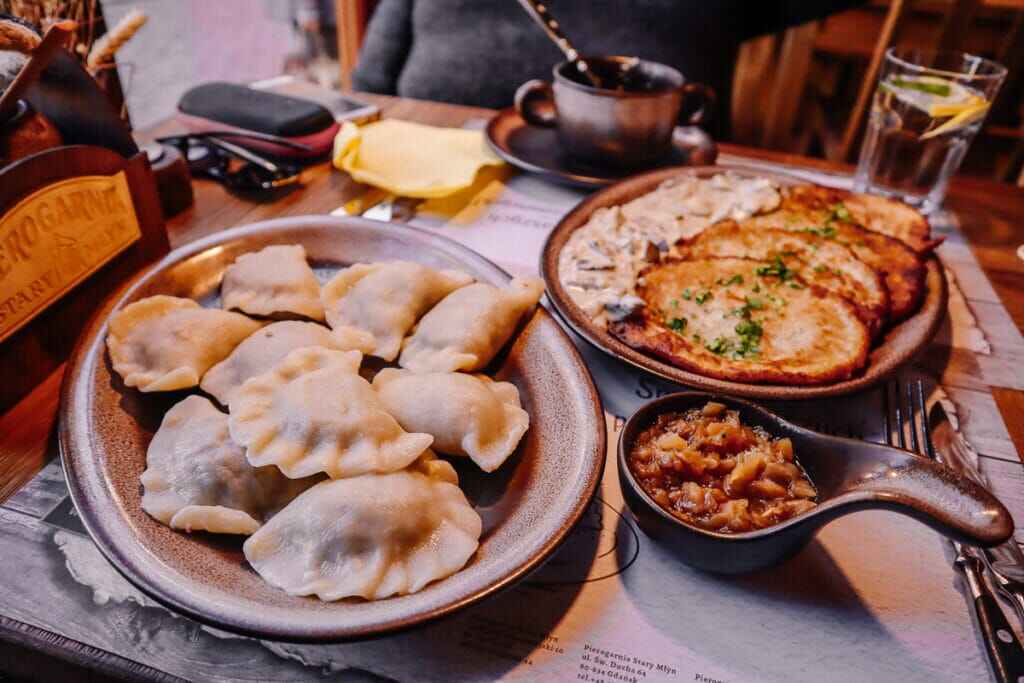
일반적으로 피로지는 구워지거나 끓여지고 (종종 끓인 후 팬에서 볶기도 함) 선택한 토핑과 함께 제공된다. 예를 들어 튀긴 양파나 사워크림 등이다. 고전적인 필링에는 리코타 치즈와 감자, 버섯과 콜리플라워, 그리고 육류가 포함되지만 요즘 레스토랑에서는 훨씬 다양한 필링을 제공하고 있다.
그리고 만약 당신이 피로지가 오직 짭짤한 음식이라고 생각했다면, 다시 한번 생각해봐야 한다. 디저트로 달콤한 피로지를 먹는 것은 필수다! 고전적인 필링은 보통 단 치즈나 베리류인데, 나는 애플 시나몬, 바나나와 땅콩 버터, 물론 초콜릿 같은 다른 맛들도 보고 먹어본 적이 있다.
만약 당신이 음식 축제를 좋아한다면,克拉코프 시가 매년 8月中旬에 피로지 축제를 개최한다는 사실에 매우 기뻐할 것입니다! Or of My Path in the World에서.
축제, 자메이카
매우 맛있는 것을 먹어서 마치 입안에서 축제가 열리는 것 같은 경험이 있던 적이 있나요? 자메이카에는 그런 이유로 '축제'라고 불리는 놀라운 튀긴 빵이 있습니다. 일반적인 자메이칸 덩이와는 달리, 이 것은 바삭한 겉과 가벼운 솜사탕 같은 안으로 이루어져 있으며 단맛이 납니다. 다양한 레시피가 있지만 보통 밀가루, 옥수수가루, 설탕, 베이킹 파우더가 포함됩니다.
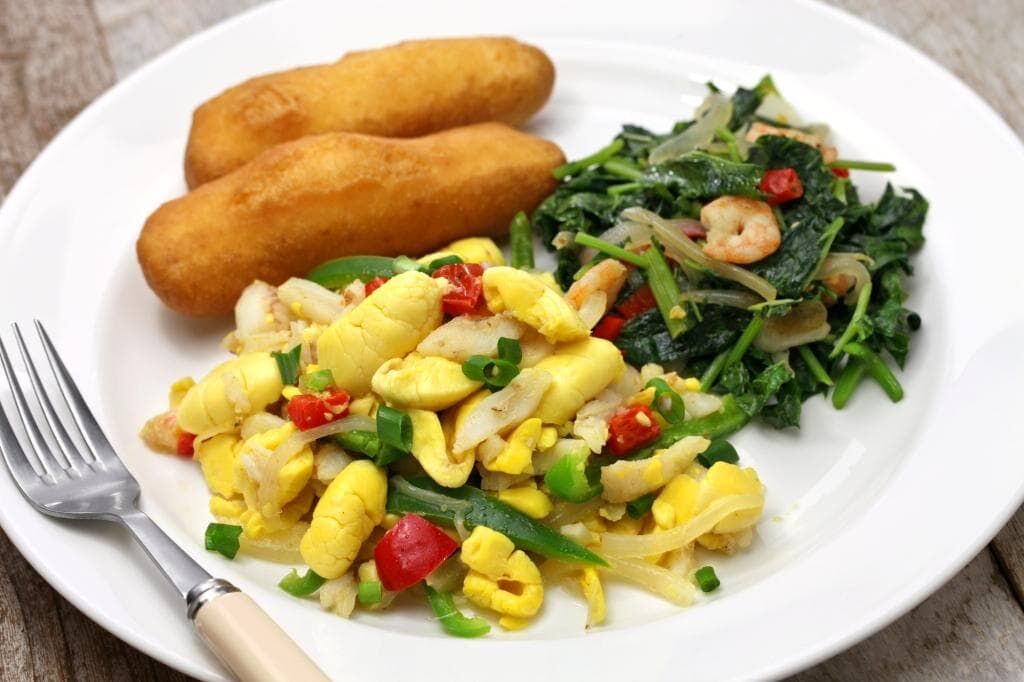
축제는 스트리트 푸드로, 전통적으로 에스코비치 어와 함께 제공됩니다. 이는 양념된 야채와 매운 소스가 얹힌 튀긴 생선입니다. 다른 튀긴 생선이나 재크 치킨 등과도 곁들일 수 있지만, 저는 혼자서도 매우 맛있다고 생각합니다!
이 식사를 찾을 수 있는 최고의 장소는 자메이카 세인트 캐서린에 있는 헬시어 비치입니다. 해변에 흩어져 있는 여러 개의 레스토랑에서 선택할 수 있습니다. 물고기와 페스티벌은 보통 파운드당 가격으로 책정되며 약 1800JMD, 즉 약 12달러 정도까지 나올 수 있습니다. 하지만 '관광객 요금'에 주의하고 주문하기 전에 대략적인 비용을 확인하세요.
제가 지금까지 먹어본 최고의 만두입니다! 어린아이부터 어른까지 모두 좋아하는 음식이죠! 이 달콤한 튀긴 만두를 한번 맛보면 더 먹고 싶어질 겁니다! 스택 유어 달러스의 마르티나로부터.
모모, 네팔
네팔에서는 반드시 시도해야 할 음식이 바로 모모입니다. 모모는 간단한 밀가루와 물로 만든生지에 야채 또는 때때로 고기를 채워넣은 전통적인 찐만두입니다. 모모를 채우는 가장 전통적인 고기는 닭고기, 양고기, 돼지고기, 그리고 야크 고기입니다. 히말라야에서 기원한 모모는 점심이나 저녁 식사로 즐기는 위안식이며, 토마토 소스 기반의 딥핑 소스인 아차르와 함께 제공됩니다.
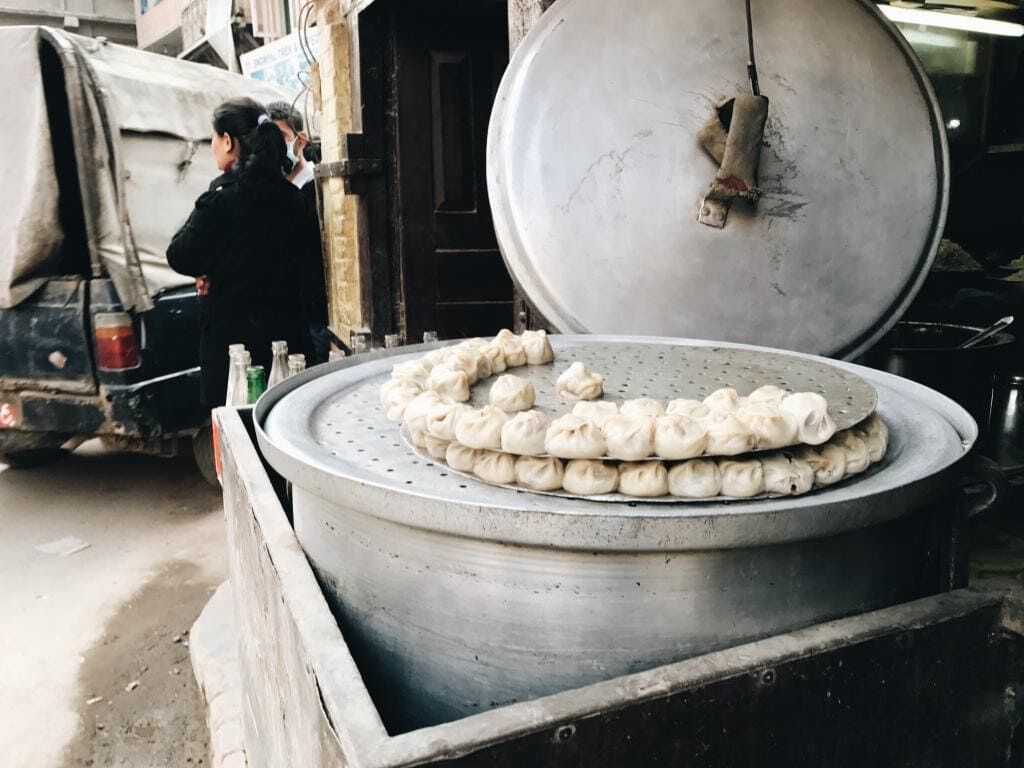
모모는 일반적으로 찌개 방식으로 조리되지만, 네팔 전역에서 다양한 종류의 모모를 찾을 수 있습니다. 제가 가장 좋아하는 변형은 매운 토마토 국물에 담가 나오는 줄 모모입니다. 하지만 프라이팬에서 구운 모모도 매우 인기있죠! 일부 지역에서는 호박과 초콜릿이 들어간 디저트 모모도 찾아볼 수 있습니다.
좋은 모모를 찾고 있다면, 네팔 어디서나 맛있는 모모를 만날 수 있습니다. 제가 이 나라에서 가장 좋아하는 모모는 포카라의 Mo2에서 나옵니다 - 줄 모모를 드셔보세요, 사랑에 빠질 겁니다! 모모는 완벽하게 부드럽고 주스처럼 촉촉하며, 요리를 한데 모아주는 국물은 신맛이 강하고 상쾌합니다! 히말라야에서 트레킹을 하든 카트만두의 활기찬 거리를 배회하든, 새로 만들어진 모모 한 접시를 먹으면 네팔 여행이 더욱 즐거워질 것입니다. - 언익스펙티드 옥커런스의 안야 카리온
초이 판, 보르네오
수백 년 전 중국 본토에서 이주해 온 차우족 사람들에 의해 처음 소개된 이 지역 특산물은 놓칠 수 없습니다. Choi pan 또는 차이 괴 인도네시아 보르네오 서칼리만탄을 방문할 때;
다양한 야채와 콩으로 채워진 만두로, 파래, 고구마, 땅콩 등이 들어갑니다. 요즘에는 일부 레스토랑에서 닭고기와 새우가 든 것도 찾을 수 있습니다. 찐 것 또는 튀긴 것으로 제공되며, 부수어진 마늘을 뿌려 먹으며, 취향에 따라 변형과 필링을 선택할 수 있습니다.
여러 장소들이 메뉴의 일부로 제공하지만 Choi pan 서칼리만탄에 있을 때 가장 진정성 있는 것을 시안카완의 Tjhia 가족 집에서 맛볼 수 있습니다.
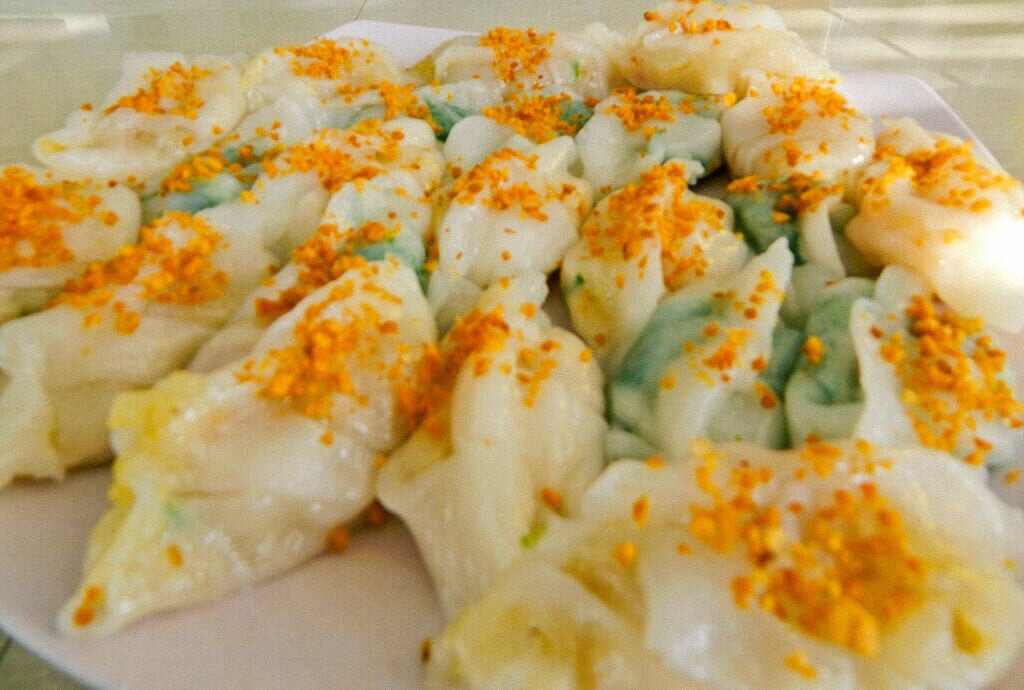
인도네시아에서 가장 관용적인 도시로 알려진 시앙카완은 주로 타퉁 축제를 통해 중국 신년과 카프고메 축제로 유명하며, 이는 중국과 데이악 사람들의 의식을 결합한 것입니다.
가족의 집은 이제 싱카완의 도시 유산 장소 중 하나가 되었습니다. 이 집은 1세기 이상 된 건물로, 1902년에 차 히아센이 지었으며, 현재 차 가문의 여섯 번째 세대가 그 안에서 살고 있으며 정원에서 소박한 레스토랑을 운영하고 있습니다.
그들의 choi pan 은 아직도 전통적이며, 그들은 단지 Choi pan 蓣 또는 파를 필링으로 사용합니다. 그들은 이전 세대로부터 레시피를 계승했다고 알려져 있습니다.
그러나 방문자가 레스토랑에 올 때, 맛있는 만두를 즐길 수 있을 뿐만 아니라, 싱카완에서 가장 주목받는 가문 중 하나에 대한 역사의 한 조각도 경험할 수 있습니다. Marya of The BeauTraveler
말레이 딤섬, 쿠알라룸푸르
말레이시아 요리는 말레이시아에 거주하는 여러 민족의 음식 문화 융합을 대표하며, 특히 말레이인, 중국인, 인도인들의 영향이 두드러집니다. 전 세계적으로 유명한 쿠알라룸푸르의 알로 거리 야시장은 세계에서 가장 인상적인 음식 야시장 중 하나로, 세계 최고의 음식들을 제공합니다. 따라서 쿠알라룸푸르 부키트 빈탕 지역의 알로 거리는 잘 알려진 먹방 여행지입니다.
놀라운 알로 거리 야시장에는 맛있는 길거리 음식을 파는 훌륭한 포장마차와 훌륭한 레스토랑들이 즐비합니다. 그러나 말레이시아의 중국식 딤섬은 알로 거리의 놀라운 음식들 중에서도 돋보입니다. 분명히 중국 딤섬은 세계에서 가장 유명한 요리 중 하나입니다.
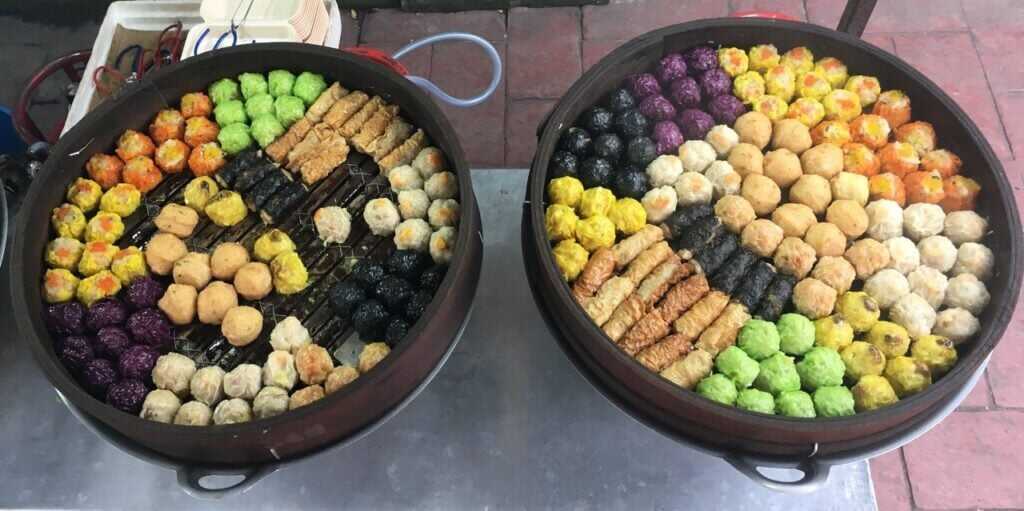
하지만 이 작은 크기의 중국 요리는 알로르 거리의 Fat Man Dim Sum 스탠드에서 눈에 띄는 색깔로 제공됩니다. Fat Man의 딤섬은 눈뿐만 아니라 입맛까지 사로잡습니다. 다채로운 딤섬은 돼지 고기, 닭고기, 게, 새우 및 양배추가 들어간 채로 찜통에서 준비됩니다.
만약 당신이 가득 차 있는 딤섬을 원하지 않는다면 걱정하지 마세요. 평범한 딤섬도 제공됩니다. 하지만 단 것을 좋아하신다면 자두 소스 기반 보라색 딤섬을 꼭 맛보셔야 합니다!
딤섬이 문자 그대로 '당신의 마음을 감동시키다'라는 의미를 가지고 있지만, 알로르 야시장의 다채로운 딤섬은 많은 사람들의 마음을 사로잡았습니다. 분명히 저의 마음도 사로잡았죠. 만약 당신이 음식을 사랑하는 사람이라면 KL로 여행할 때 꼭 Jalan Alor의 Fat Man Dim Sum에서 다채롭고 군침 도는 딤섬을 확인해 보세요! World Travel Connector의 Milijana로부터
Kniddelen,卢森堡
니델렌은 세계에서 가장 좋은 만두를 찾고 있다면 반드시 맛봐야 할 유명한 전통 룩셈부르크 만두입니다.
만두는 오늘날의 문화에서 특별한 의미를 가지고 있습니다. 왜냐하면 사람들 사이를 연결해주는 음식으로 이보다 더 좋은 것이 없습니다. 룩셈부르크 만두(니델렌)는 백밀가루와 물로 만들어지며 종종 베이컨( 라르동 )과 소스와 함께 제공됩니다.
일반적인 만두는 저렴하고 집에서 쉽게 만들 수 있으며 천국 같은 맛을 제공합니다. 소스 중 어느 것과도 곁들여서 또는 전체 식사로 먹을 수 있습니다. 또한 남은 니델렌은 나중에 프라이팬에서 볶아 먹을 수도 있습니다. 그렇지 않으면 룩셈부르크의 레스토랑에서 다양한 모양, 맛, 스타일의 만두를 맛볼 수 있습니다. 예를 들어 - Bei De Bouwen 또는 Am Tiirmschen.
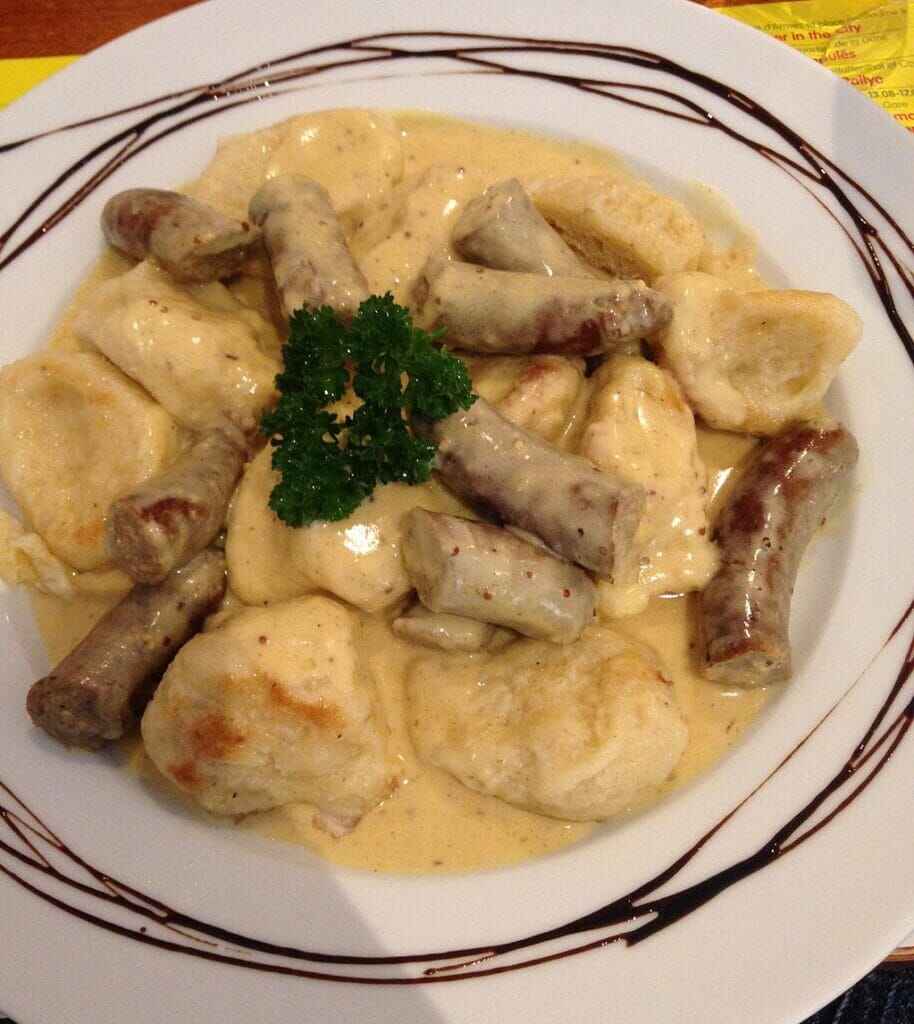
또한, 니델렌 골프볼은 밀가루, 계란, 우유, 후추, 얇게 썬 또는 훈제 베이컨, 두꺼운 반죽, 버터, 소금물 등의 재료로 만들어집니다. 흥미롭게도, 옛날 사람들은 우유 대신 물만 사용하여 골프볼을 만들기도 했습니다. 또한, 니델렌은 보통 첫 날에 삶아서 제공됩니다.
다음 날에는 프라이팬에서 튀겨서 제공할 수 있습니다. 그래서, 이를 듣고 이제 스스로 룩셈부르크 골프볼(니델렌)을 만들어보고 싶다면, 매우 간단하게 만들 수 있습니다. 이들은 룩셈부르크 음식 중 가장 유명한 것들 중 하나이며, 많은 음식 및 여행 커피 테이블 북에서 다뤄졌습니다. 폴리나 온 더 로드의 폴리나로부터 전해드립니다.
하 고우, 차이나
하 고우(Ha Gow), 또는 새우 만두는 세계적으로 가장 인기 있고 잘 알려진 만두 중 하나입니다. 이 중국식 만두는 일반적으로 아침, 브런치 또는 점심 메뉴로 제공되며, 다른 딤섬 요리와 함께 핫 티와 함께 즐기는 광동식 딤섬 레스토랑에서 제공됩니다. 하 고우는 딤섬과 동의어로 간주되며, 브런치로 딤섬을 먹을 때 하 고우를 주문하지 않는 것은 "잘못된 것"으로 여겨집니다!
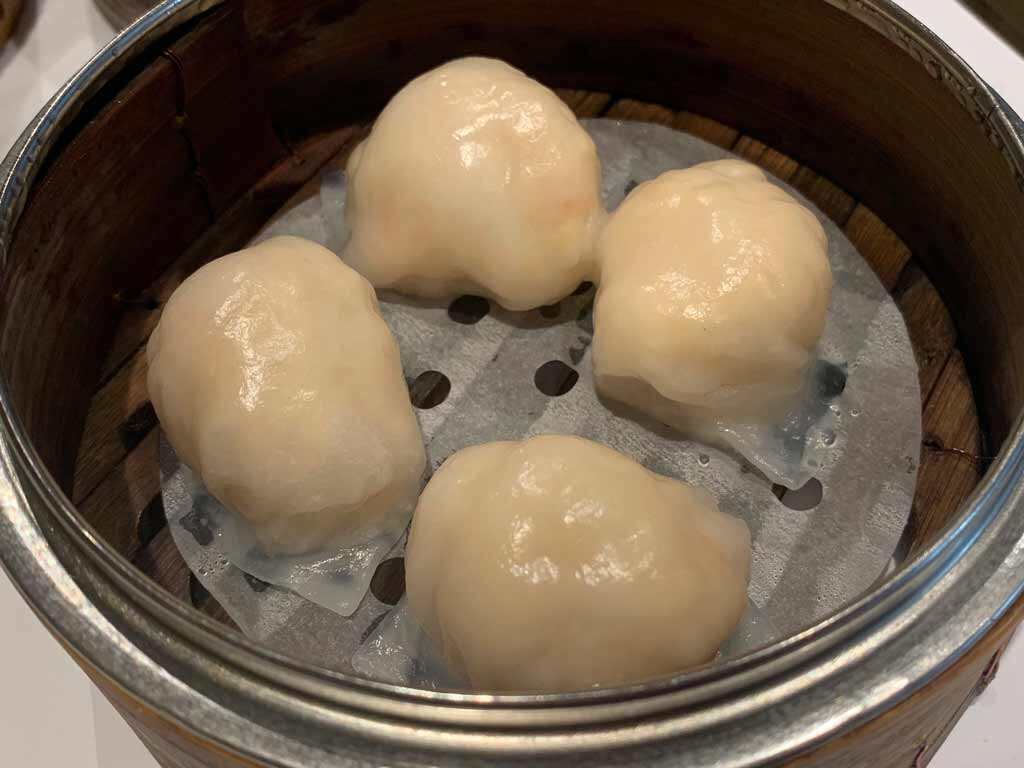
포켓 모양의 새우 만두는 흰색이지만 투명하고 얇은 만두 피로 특징지어집니다. 이 특별한 만두 가죽은 특히 연약하고 부드러워서 찌는 동안 갈라질 수 있으며 완벽하게 만들기 어렵습니다. 보통 하 고우는 새로 찜솥에서 꺼낼 때 흰색이고 불투명해 보이지만, 식으면 더 투명해집니다.
전설에 따르면, 하고우는 광저우 근교의 오초 마을에 있는 차관의 주인이 발명했다고 합니다. 그 주인은 차관 앞 강에서 새우를 잡아 하고우의 신선한 속재료로 사용했습니다. 오늘날, 하고우는 전 세계의 딤섬 레스토랑에서 찾을 수 있지만, 특히 광저우에서는 매우 맛있으며 사실 홍콩에서 먹을 수 있는 최고의 음식 중 하나입니다. 팬다 베어의 모험에서 공헌한 콘스탄스.
스트룰리, 슬로베니아
슬로베니아 수도 리유블라나에서 해야 할 최고의 일 중 하나는 슬로베니아 요리를 맛보는 것입니다. 그리고 우리가 먹었던 최고의 요리 중 하나는 스트룰리였습니다!
스트룰리는 16세기 말에 오스트리아 그라츠 시의 한 셰프가 타고난으로 만든 첫 번째 버전을 만들면서 시작된 슬로베니아의 전통 덮밥 요리입니다. 처음에는 도시에 사는 부자들만 만들었지만, 결국 스트룰리는 시골에도 퍼졌습니다.
원래 특별한 날에만 먹던 축제 요리였던 Štruklji는 이제 일상적으로 만들어지고 제공됩니다. 이 떡갈비는 슬로베니아에서 매우 인기가 있지만, 크로아티아와 같은 인근 국가들에서도 각각의 버전을 가지고 있습니다.
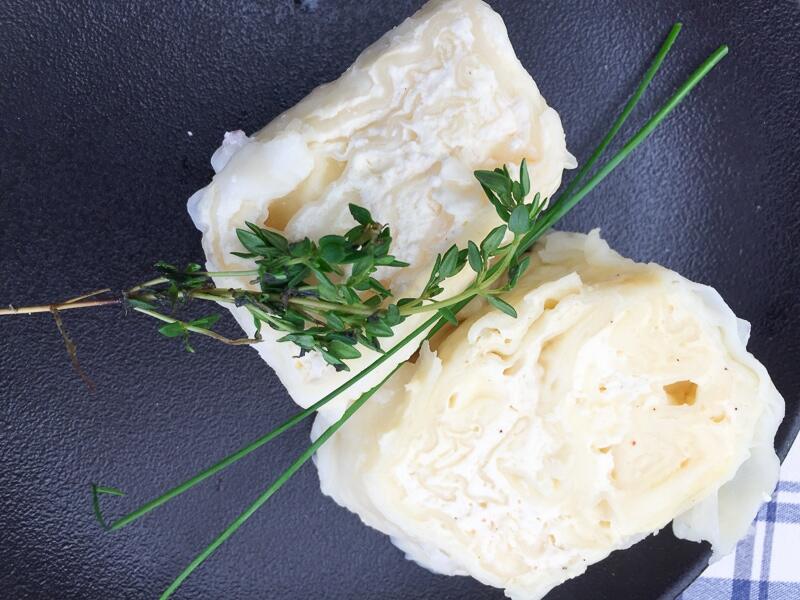
이 요리는 밀가루나 현미 가루, 계란, 올리브 오일로 만든生지로 만들어집니다.生지는 펴서 필링을 올리고 떡갈비 모양으로 말아줍니다. Štruklji는 매우 다용도로 사용되어 찌거나, 구워지거나, 튀겨지거나, 끓여질 수 있습니다. 소스 없이 그대로 제공되기도 하고, 소스와 함께 제공되기도 합니다.
Štruklji의 필링은 단 맛이나 짠 맛이 있을 수 있습니다. 우리가 먹었던 버전은 살짝 넛메그 향이 나는 짠 맛의 커드 치즈가 들어있었습니다. 하지만 조리된 사과나 겨자와 치즈로 채워진 Štruklji도 있으며, 호두와 꿀은 매우 인기 있는 필링입니다.
슬로베니아의 대부분의 식당에서 Štruklji를 찾을 수 있으며, 특히 Люб리아나에서는 더욱 그렇습니다. 'It’s Not About the Miles'의 Dhara.
구아치, 이탈리아
뉴기리는 이탈리아의 사랑받는 단자 요리로, 종종 최고의 편안한 음식으로 묘사됩니다. 음식 역사가들은 뉴기리라는 단어가 나무에 있는 결인 '노치오' 또는 관절을 의미하는 '노카'에서 유래된다고 믿고 있습니다. 이는 단자의 덩어리 모양을 가리킵니다. 이 요리의 기원은 로마 시대까지 거슬러 올라갈 수 있으며, 에너지를 보충하기 위해 병사들에게 제공되었던 든든한 요리였습니다.
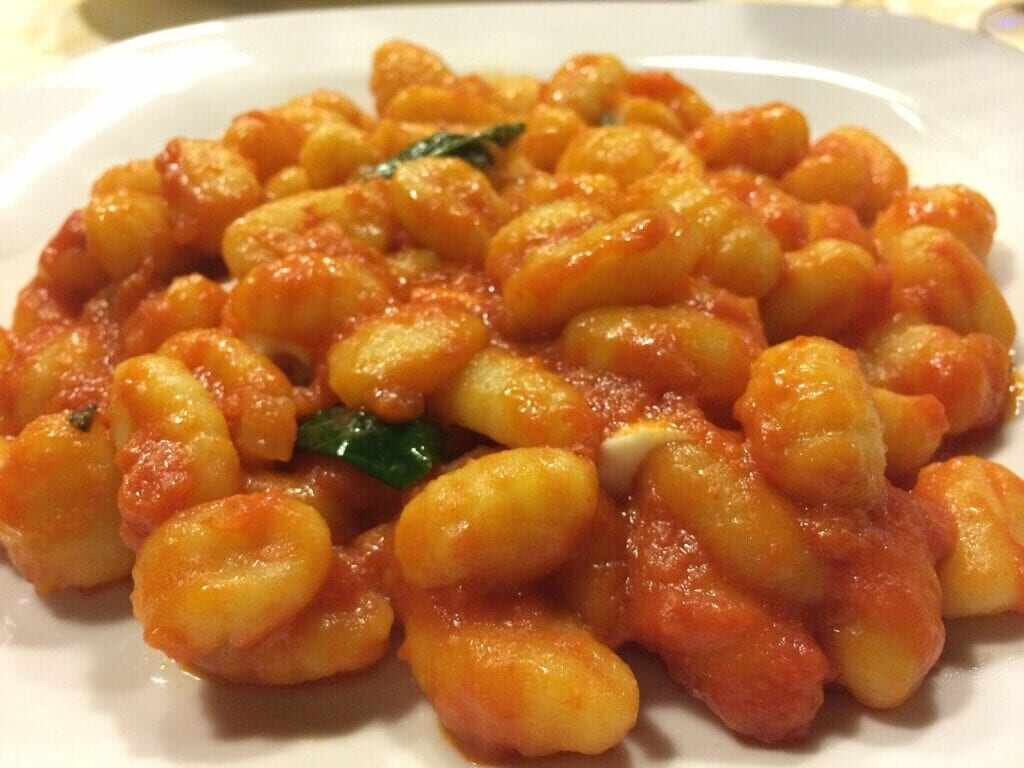
뉴기리 레시피는 기본적으로 밀가루와 감자를 섞어生面을 만드는 조합입니다. 이 혼합물은 구르려지고 작은 크기로 자릅니다. 부드러운 쿠션처럼 생긴 단자는 맛있는 소스를 가장 잘 담을 수 있도록 만들어지며, 일반적으로 약간의 움푹 들어간 부분이나 엄지 자국이 만들어집니다.
고구마를 잘라서 짧게 소금물에서 끓인 후 소스와 함께 제공됩니다. 이탈리아 외곽에서는 주로 토마토 기반의 소스와 함께 먹는 경우가 많습니다. 하지만 모든 이탈리아 요리와 마찬가지로 지역별 변형이 있으며, 이를 통해 맛, 모양, 질감의 흥미로운 탐험이 가능합니다.
지역별 레시피에 따라 빵가루, 계란 또는 셈리나가 반죽에 추가됩니다. 리구리아에서는 바질과 피네이트로 만든 신선한 페스토와 함께 제공되며, 롬바르디 지역의 고노치는 버터와 사지로 간단히 양념됩니다. 토스카나에서는 리코타 치즈와 쇼이드 트러플로 만들어진 호화로운 버전이 있습니다.
고노치는 일반적으로 이탈리아 메뉴에서 프리모(첫 번째 요리)로 제공됩니다. 그러나 어떤 방식으로 제공되든 매우 맛있으며 이탈리아를 방문할 때 꼭 시도해야 할 요리입니다. Untold Travel의 캐티가 제공했습니다.
샤오롱바오, 호주
다인타이펑은 타이베이의 음식 포장마차로 시작해 전 세계적으로 성장한 만두 체인입니다. 하지만 '체인'이라는 단어에 거부감을 느껴서는 안 됩니다. 주문 후 몇 분 안에 음식이 나와도, 그들의 수작업 돼지 고기 만두에는 패스트푸드와는 전혀 다른 정성과 정확성이 담겨 있습니다. 다인타이펑의 오픈 키친에서는 각각 18번 이상 접히고, 최종 무게가 20.8그램에서 21.2그램 사이로 일정하게 만들어지는 만두를 직접 볼 수 있습니다.

저는 호주 멜버른에서 처음으로 그들의 만두를 맛보았습니다. 멜버른은 세계적으로 가장 혁신적인 음식 트렌드와 아름다운 요리의 중심지 중 하나입니다. 제가 방문했을 때, 무지개색 만두가 특별 메뉴로 제공되었으며 거의 매일 완판되었습니다. 무지개의 각 색깔은 다른 필링을 가지고 있었습니다. 멜버른의 많은 트렌드처럼, 이 필링들은 옥수수, 치즈, 보โล네제 같은 비전통적인 재료들로 구성되어 있었습니다.
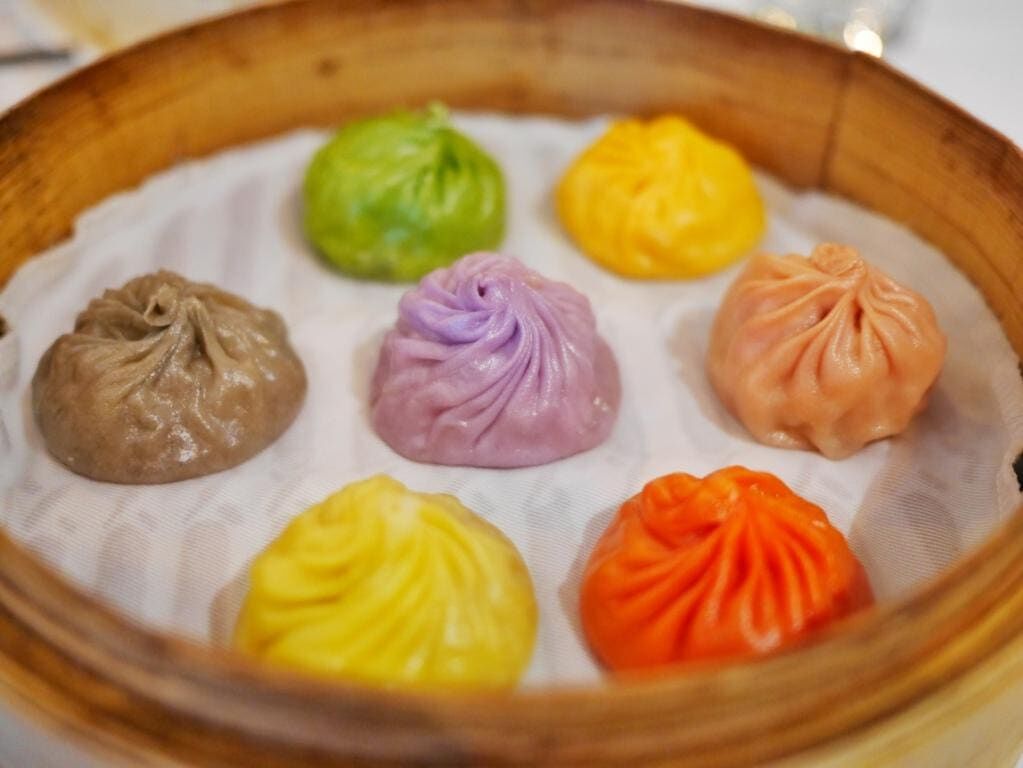
Din Tai Fung 호주 소셜 미디어 계정을 통해 최신 창작물을 꼭 확인하세요. 그동안 그들은 무지개 면, 스트로와 함께 제공되는 거대한 샤오롱바오(먼저 국물부터 마실 수 있도록), 그리고 와규와 블랙 트러플이 든 금박 운세 만두를 선보였습니다.
무지개 만두는 더 이상 제공되지 않지만, 샤오롱바오 덮밥은 어떤 색깔이든 항상 방문할 가치가 있습니다. 트러플 만두를 주문하지 않고는 떠나지 마세요. 풍부한 맛이 정말 천국입니다! The Sweet Wanderlust의 브리타니가 기고했습니다.
코자카타이, 남인도
Kozhakattai 또는 Kozhukattai는 타밀 나두라는 남인도 주에서 유래된 일종의 만두입니다.
특별한 날이나 간네쉬 축제 때 자주 준비되며, 코자카타이 또는 모드하캄 여러 버전이 존재하며, 항상 채식 스낵이나 프라사담(신성한 제물)입니다.
매운맛의 업푸 코자카타이 즉, 소금이 든 만두로 번역되며 푸란람 코자카타이 , 잇꽃 설탕과 찰conut의 혼합물로 채워진 단 맛의 만두는 타밀 가정에서 다양한 종류로 만들어집니다.
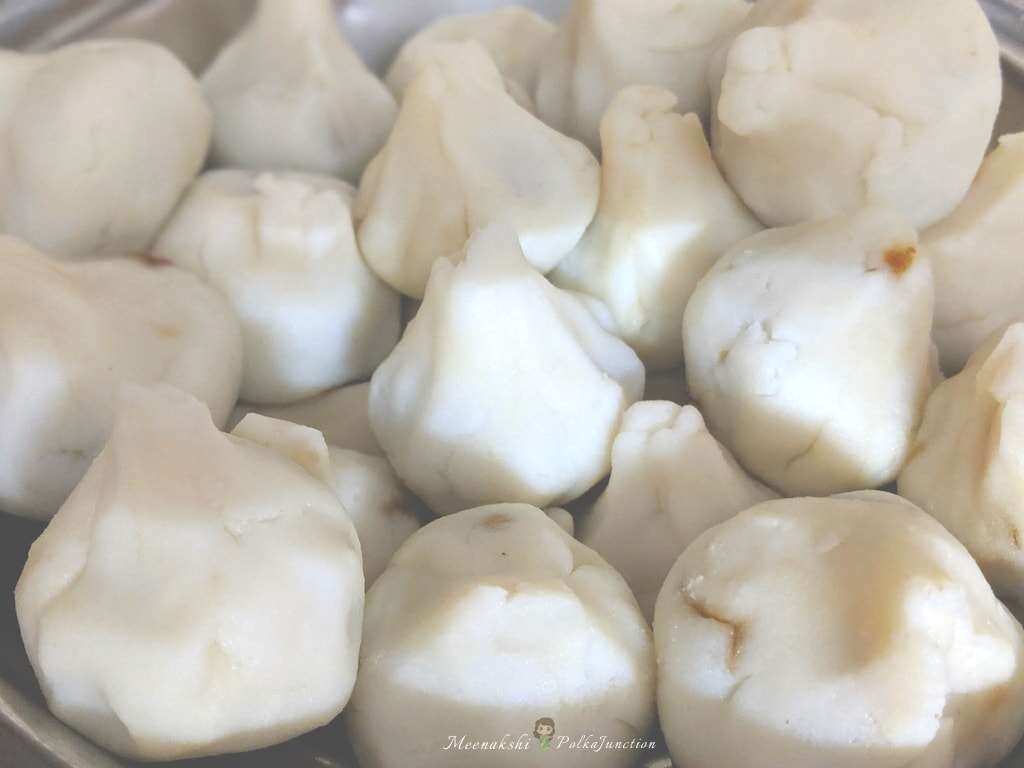
세계 여러 지역의 많은 만두들이 정제된 백설탕을 기본 재료로 사용하는 반면, 코자카타이는 쌀가루를 이용하여 만든 면으로 만들어집니다. 코자카타이 제작 과정은 항상 만두 면의 준비로 시작됩니다.
원미를 한두 시간 동안 불에 세우고, 공기 건조 후 분쇄하고 약간 볶아 물로 조리하면 면이 완성됩니다. 이 면은 작은 원형으로 펴서 달콤한 간식이나 짭짤한 간식으로 채워지고, 예술적으로 접혀 코자카타이 모양이 됩니다. 이를 찌개로 삶아 신들에게 바치는 prasadam (신성한 제물)로 바치고 나서 먹습니다.
타밀나두에 위치한 1600년 된 피라이야르пат티 카르파 비나야카르 암석 사원에서는 비나야가 차투르티(가네시 차투르티) 축제 기간 동안 원래 쌀 18 말로 만든 거대한 고자카타이 하나를 준비합니다. 이 축제는 코끼리 신 가네샤의 탄생을 기념합니다. 폴카저션의 미나크시.J 작성.
마우탈라헨, 독일
스바비아는 독일의 문화적이고 언어적인 지역입니다. 이곳은 나라의 남동쪽에 위치해 있으며 슈투트가르트 도시와 그 주변 지역을 포함하고 있습니다. 독일 여행을 계획 중이라면 explora할 멋진 지역입니다. 이 유럽 지역을 방문해야 할 가장 큰 이유 중 하나는 독특한 현지 요리와 음식들입니다.
맛있는 스바비아 음식 중 하나는 세계 최고의 떡갈비 중 하나입니다. 이를 마우탈라헨이라고 하며, 문자 그대로 '포켓'이라는 의미입니다. 파스타生地로 만들어져 육류와 시금치, 그리고 약간의 육두구로 채워져 있거나 감싸져 있습니다.
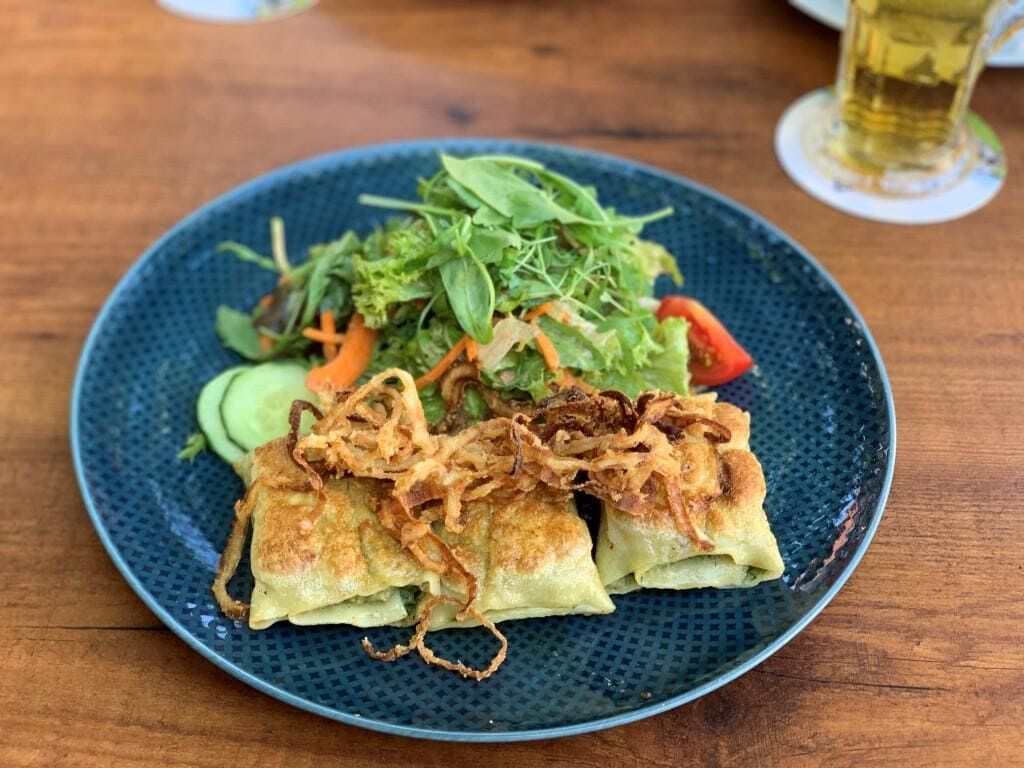
만타셴은 구워지거나 수프에 추가되거나 약간 볶아서 제공됩니다. 평범하게 제공될 경우, 튀긴 양파로 장식됩니다. 이 레시피는 해당 지역의 수도사들이 만들었다고 전해집니다. 전설에 따르면 수도사들은 단식 기간 동안 이 요리를 만들어 육류를 숨겨 하나님으로부터 감추었다고 합니다.
그 출처가 무엇이든간에, 그 결과물은 수백 년 동안 전해져 내려오며 그 맛은 절묘합니다. 이는 스와비아를 중앙 유럽의 미식가 여행지로 만드는 요리 중 하나일 뿐입니다. 스와비아 밖에서 스와비아 요리나 만타셴을 찾기는 어렵기 때문에, 만약 스와비아 지역에 있다면 전통적인 식당에서 이를 꼭 시켜보세요. 이 놀라운 덩어리 요리에 실망하지 않을 것입니다! Robe Trotting의 드erek과 마이크가 기여했습니다.
크노델, 오스트리아
동유럽과 중앙유럽에서 흔히 볼 수 있는 요리인 떡갈비는 오스트리아 요리에서 높은 위치를 차지하고 있습니다. 제가 빈으로 이사 오기 전에는 제게 있어 가장 좋아하는 요리 중 하나는 아니었지만, 오스트리아 수도에서 살 동안 그 가치를 알게 되었습니다.
밀가루, 빵, 고기 또는 감자로 만들어진 떡갈비는 짭짤한 부식으로, 스프에 들어가거나 달콤한 디저트로 변신하며, 여름 휴가철이든 빈의 크리스마스 시장에 방문하든 연중 언제나 즐길 수 있는 특산물입니다. 흥미롭게도 독일어/오스트리아어로 떡갈비를 의미하는 '크노델(Knoedel)'이라는 이름은 '결을 만드다' 또는 '반죽을 다루다'라는 동사인 '노텐(Knoten)'에서 유래되었으며, 이는 요리의 준비 방법을 암시합니다.
이들의 다양한 성격은 가정에서 현재 사용 가능한 재료(고기 없는 빵, 채소 등)로 이러한 포만감 있는 요리를 준비하는 전통에서 비롯됩니다. 이를 통해 자원의 사용을 극대화할 수 있습니다. 몇백 년의 전통이 단순한 레시피를 고급 미식 요리로 변화시키는 것을 맡겨보세요.
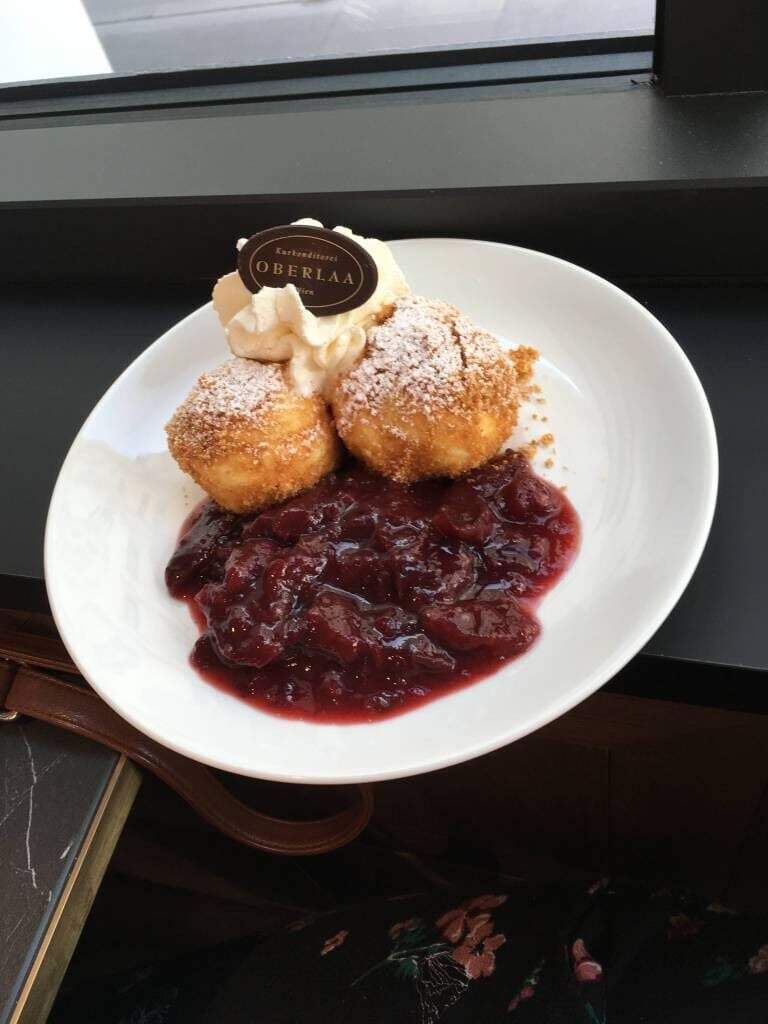
제가 크노델을 가장 좋아하는 이유는 항상 신선하게 준비되고 계절에 따라 달라지기 때문입니다. 유명한 레버크노델 수프는 연중 즐길 수 있지만, 11월의 전통적인 세인트 마틴 거위와 같은 계절 요리와 함께 나오는 크노델도 있습니다. 여름에는 빈의 10구역에 있는 아이스크림 가게 티히에서 중앙에 살구가 들어간 아이스마릴렌크노델을 제공합니다.
전통적인 빈 커피숍과 제과점인 쿠르콘디토레이 오블라아에서는 계절에 따라 달라지는 단 크노델 변종을 제공합니다 - 봄이냐 가을이냐에 따라 체리나 살구 필링이 들어갑니다. 제가 가장 좋아하는 것은 살구 또는 플럼 잼이 든 달콤한 치즈 크노델(토펜크노델)입니다. 드림 북 앤 트래블의 안카
감자 크노델, 독일
독일 감자단자는 남부 독일 바이에른에서 유래한 둥근 모양의 단자입니다. 이 단자는 지난 1000년 동안 일부 지역이 과거에 하나의 지역이었던 적이 있기 때문에 인접한 오스트리아 지역에서도 흔합니다. 이 단자는 보통 돼지고기와 함께 제공되며, 돼지 구이, 사워브라트, 사우어크라우트, 조림 붉은 양배추 및 지역 특산 소시지와 같은 부식과 함께 제공됩니다. 대체로 버터를 발라 파슬리로 장식한 감자와 같이 제공할 수 있습니다.

이 단자는 주로 삶은 감자와 다목적 밀가루를 사용합니다. 이를 뜨거운 소금물에 삶기 전에 공으로 만들어줍니다. 이는 북부 이탈리아의 그노키와 비슷해 세계 대전 이전에 이 지역들이 어떻게 연결되어 있었는지를 보여줍니다.
우리는 보통 이 맛있는 떡국을 만들기 위해 삶은 감자 잔여물을 사용합니다. 왜냐하면 삶은 감자는 차가운 육류 가공품과 치즈와 함께 농부들의 저녁 식사 메뉴 중 하나이기 때문입니다. 아무것도 버려지지 않으며, 이 지역들은 세계에서 가장 음식에 신경 쓰는 장소들 중 일부입니다. 감자 떡국은 거의 이를 입증하는 요소입니다. 올해 우리는 바바리아의 뮌헨에서 열리는 오크토버페스트로 가을 수확을 축하할 수 없으므로 우리는 모두 집에서 더 많은 떡국을 만들 것입니다. 게다가 감자 떡국을 처음부터 만드는 것은 매우 쉬워 초보자에게도 좋습니다.
교자, 중국
일본의 교자를 들어본 적은 있을 겁니다. 그런데 중국에도 자신의 교자인 교자가 있다는 것을 알고 계셨나요?
교자는 주로 갈은 고기나 야채로 채워진 떡으로, 큰 대나무 바구니에서 찐 것입니다. 대부분은 기름과 향신료로 만든 찍어먹는 소스와 함께 제공되지만, 중국의 일부 지역에서는 교자가 국물과 함께 제공되기도 합니다.
한 가지 이론에 따르면, 이 맛있는 만두는 기원후 25년에서 200년 사이인 동한 시기에 발명되었으며, 다른 이론은 교자(Jiaozi)가 그보다 훨씬 오래된 것이며 기원전 300년에서 기원후 25년 사이인 서한 시기에 발명되었다고 주장한다. 그러나 확실한 것은 장이(Zhang Yi)가 쓴 '광야(Guangya)'라는 책에 교자가 언급되어 있어, 기원후 550년경에는 이미 만두가 중국 요리의 큰 부분을 차지하고 있었다는 것이다.
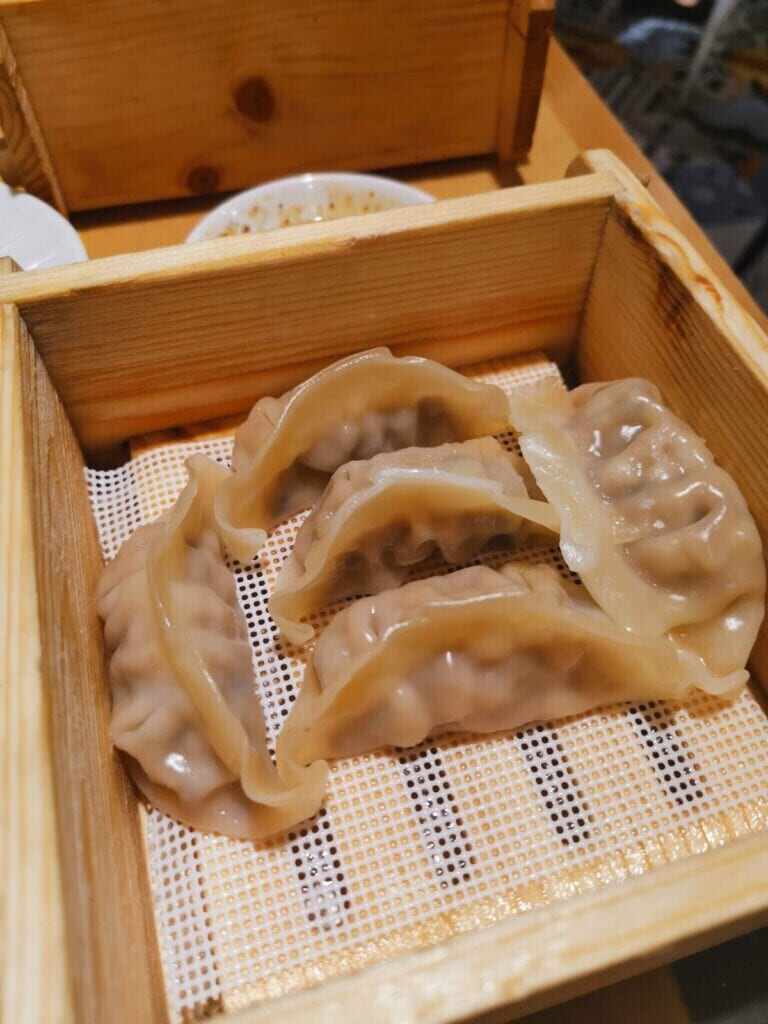
교자의 중국 생활에서의 중요성은 당나라 투루판(Turfan) 무덤에서 발견된 교자 그릇에서도 볼 수 있다.
교자는 찌거나 끓이거나 팬에 구울 수도 있고, 심지어 국에 끓일 수도 있다. 중국의 어느 지역을 방문하느냐에 따라 완전히 새로운 종류의 교자를 경험할 수 있다. 돼지고기와 양고기에서 셀러리와 두부에 이르기까지 다양한 필링으로 만들어진 교자를 찾을 수 있다.
교자(Jiaozi)가 특별한 이유 중 하나는 많은 음식 역사학자들이 교자가 해당 지역의 여러 만두들의 시조에 해당된다고 동의한다는 점이다. 티베트와 네팔의 모모부터 아제르바이잔의 구르제, 심지어 일본의 교자까지: 원조의 맛을 알고 싶다면 진정한 중국 교자를 한번 맛보아야 한다. 글리터 리벨(Glitter Rebel)의 레이제가 기여함.
세계 각지의 독특한 만두
펠메니, 러시아
튀르키예의 만티 만두와 유사하게, 펠레니는 고기, 버섯 또는 치즈로 채워진 반달 모양의 만두로, 소금물에서 삶아낸다. 하지만 펠레니는 과일과 같은 단맛으로 채워지지는 않는다.
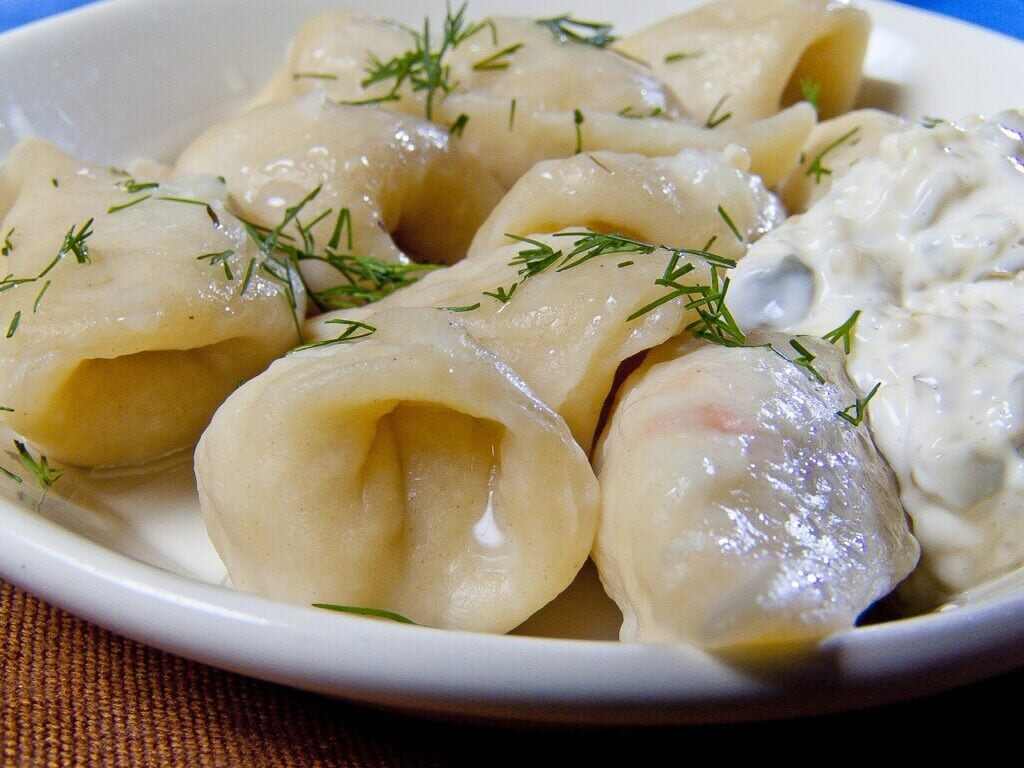
오샤크, 아프가니스탄
오샤크는 파스타 스타일의 만두로, 봄 양파로 채워져 있으며 스파게티 볼로네이즈와 비슷한 요리에 제공되며, 요구르트와 민트로 장식된다.
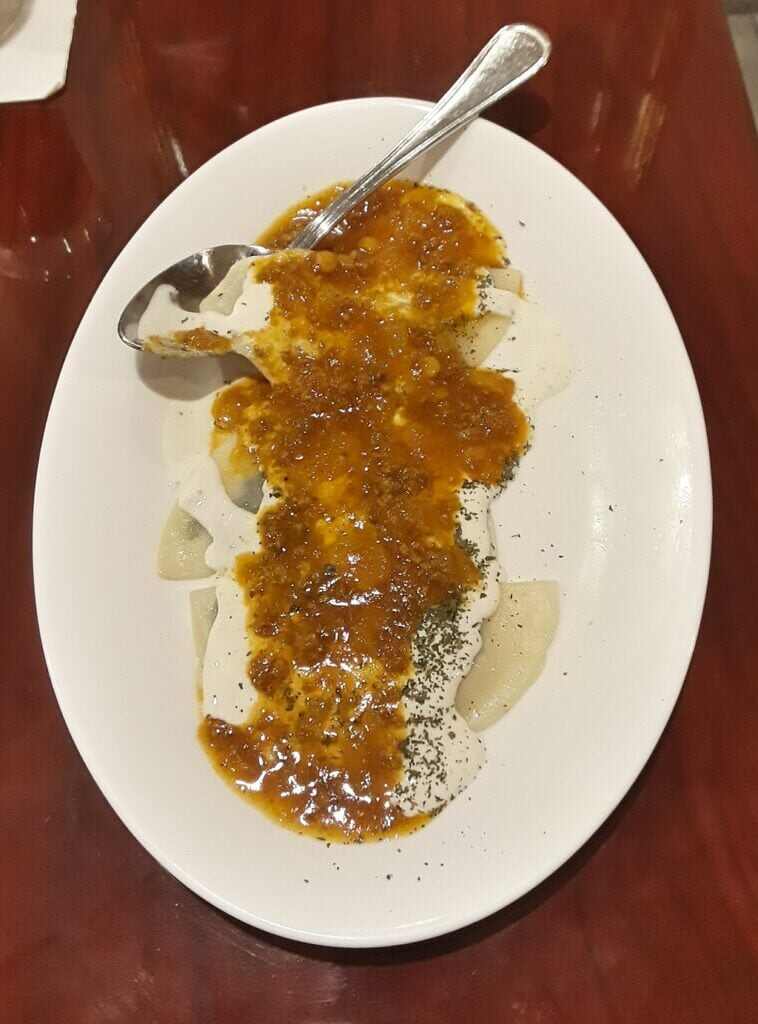
크롭카카, 스웨덴
크로프카는 돼지고기와 양파가 섞인 스웨덴의 감자 덩어리로, 모든 향신료로 양념됩니다. 감자 혼합물은 보리 가루와 섞여 있으며, 조리하면 버터와 린곤베리 소스와 함께 제공됩니다.
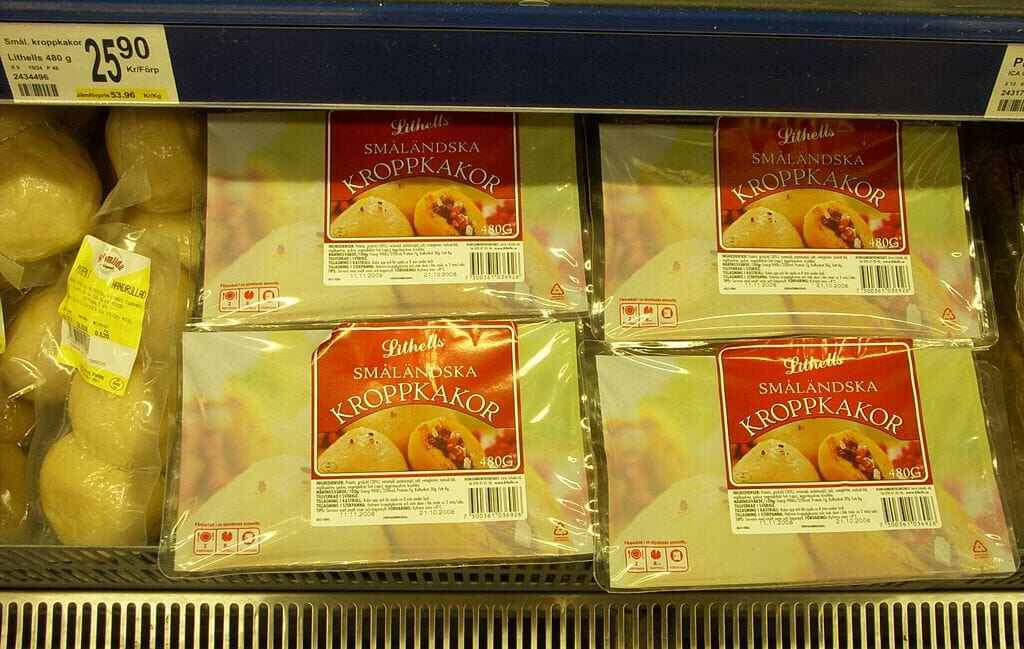
세상에는 다양한 종류의 만두가 있습니다; 달콤한 만두에서 가나의 밈발효 옥수수 가루로 만들어진 반쿠까지, 그리고 몽골의 양고기로 채워진 부즈 만두에 이르기까지 말이죠. 일부 사람들은 사모사나 자메이카 파이, 코ーン월 파이처럼 손으로 드는 파이도 만두로 간주합니다. 하지만 우리는 이번 33가지 만두 세계일주에서는 이를 포함하지 않았습니다.
전 세계적으로 너무 많은 종류의 만두가 있어서 우리가 놓친 것이 있을 것이라고 확신합니다 - 당신의 가장 좋아하는 만두는 무엇입니까?


